


 By David Bell, Founder | PCD Group
By David Bell, Founder | PCD Group

This edition is focused on sustainability and we are excited to share the perspectives of thought leaders in the sector. Don’t miss the highlights from our New York Impact panel and our interview with Paula DiPerna. We also have insights from the South Africa UK education roadshow and the TrustConsult conference on Privacy. Between our London events in March, I had the pleasure of sitting down with Heather Tibbo of Crestbridge to learn more about the growth of their business.
Want to get involved? You can always contact us at magazine@pcd.group #MakeItHappen. We have a busy couple of months ahead in Lagos, Jersey and London - hope to see you there. Follow us on



WELCOME Welcome
4 Global Perspectives on Impact Investing 9 Impact Investing and Climate Change 11 ESG Investments - Three Points to Consider 12 The Three Cs of Employee Sustainability 14 Investment Migration Is a Sustainable Win–Win 15 Investing with Purpose 16 Financing the Nature Transition 20 The Big Interview with Crestbridge’s CEO 22 Managing Money with Titan Wealth’s Ian Wood 23 Opportunities Securitization Vehicle in Luxembourg 24 UK Education Options South Africa Roadshow 26 Cross-Border Banking: Addressing Succession 29 New rules: Modernising Trusts and Succession 31 ADR and empowering advisors 32 It’s (sometimes) Good to think about Divorce 33 View from Singapore - Trailblazing in Fund Administration 36 Enhancing Workplace Communication
2024 WE HAVE A VARIETY OF WAYS THAT YOU CAN BE PART OF THE CONTENT INCLUDING: - CONTRIBUTING ARTICLES & THOUGHT LEADERSHIP - FEATURING IN COLLABORATIVE CONTENT - DESIGNED FEATURE ARTICLES ABOUT YOUR BUSINESS AND TEAM LUXURY ASSETS Submission deadline 25th October 2024 ESTATE PLANNNG Content submission deadline 26th July 2024 NOV SEP MAGAZINE CONTENT CALENDAR SPONSORSHIP IF YOU’RE INTERESTED IN SPONSORING CONTENT, CLICK HERE TO CONTACT MAGAZINE@PCD.GROUP COMINGSOON MAGAZINE CONTENT CALENDAR 3
Global Perspectives on Impact Investing: Insights from Industry Leaders at the Yale Club
Last Autumn in New York, PCD Group convened a meeting of leading international experts on the subject of trends in the field of impact investment. Hosted at the prestigious Yale Club in the heart of midtown Manhattan, we brought four speakers together from different parts of the financial services world to share their perspective. We were trying to find the similarities and differences in approach from the US, Europe and Asia.
To give some context to our discussion, The global impact investing market is anticipated to grow from USD 3 trillion to USD 7.78 trillion over the next 10 years. This rapid growth is driven by favorable government policies and initiatives. Impact investing combines a focus on producing quantifiable benefits for the environment or society with financial goals.
Investors consciously seek to effect positive change in the world by supporting businesses with clear goals for improving social and environmental conditions.
Impact investment is increasingly important for clients - Surveys of HNWIs indicate that achieving social impact is important to over 90% of respondents. As the millennial generation engages as philanthropists, interest in impact investing is set to grow, creating conditions for more experimentation and innovation. Wealthy individuals and families are uniquely positioned to pursue “impact-first” investments that prioritize social and environmental gains over financial returns. Technological developments and creative entrepreneurship create new opportunities for impact investments and profitable returns.
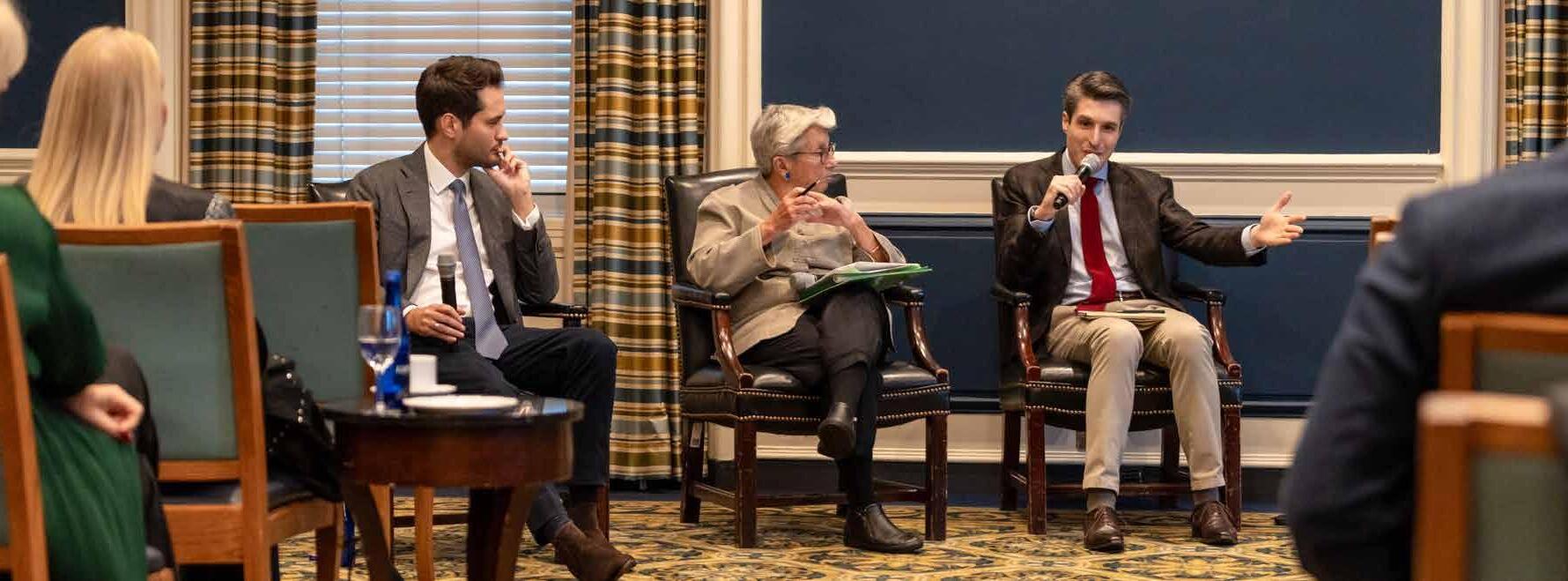
IMPACT INVESTING 4
We were delighted to welcome:
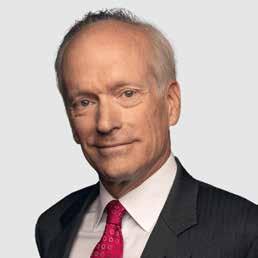
Pierre du Pont, Partner, Cerity Partners, New York. Pierre is an entrepreneur, an angel investor, a mentor to new and not-so-new executives, and a strategic advisor for wealthy individuals and business owners.

Rennie Hoare, Partner & Head of Philanthropy
– C. Hoare & Co, London. Rennie is a Partner and Head of Philanthropy at the UK’s oldest private bank, founded in 1672.
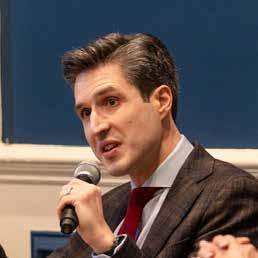
Franck Litzler, First Vice President at Merrill Lynch Wealth Management. Franck advises high-net-worth families on a variety of wealth management matters.

Paula DiPerna, author and strategic global environmental and philanthropic policy advisor. Paula DiPerna is widely published, a frequent global public speaker, media commentator, guest lecturer, and panelist, and is a columnist for Environment magazine.
Environmental Social Governance
Definitions - how do we break down some of the terminology in the ESG & Impact Investment space? Has ESG become a loaded term?
The world of ESG and Impact Investing can be confusing with a lot of terminology to break down. However, it’s essential to understand these definitions to make informed investment decisions.
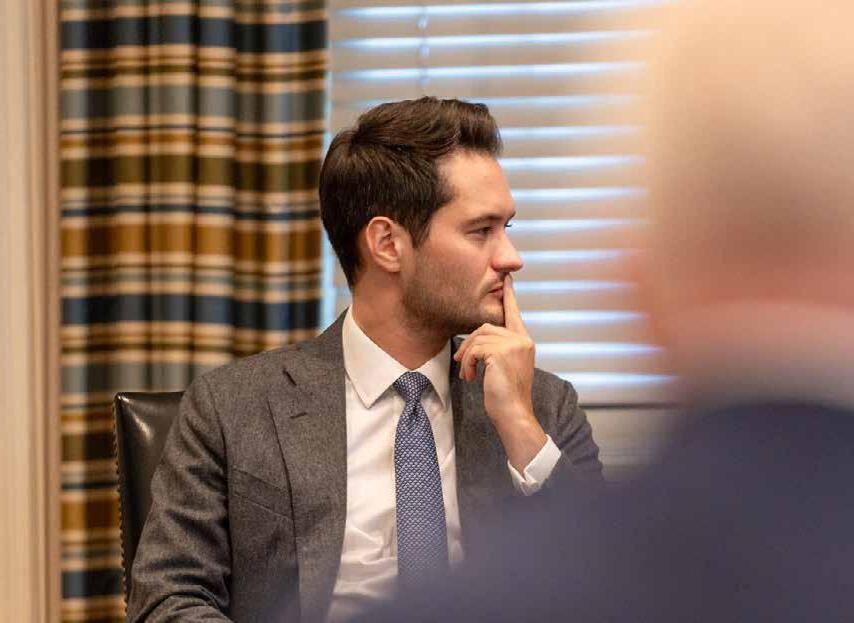
ESG investing encompasses environmental, social, and governance risks but is not actively seeking them as a driver of returns. It’s simply informed investing. Impact investing, on the other hand, focuses on market rate financial returns and measurable environmental and social returns, a thin sliver of investments. Concessionary Finance is more in the innovative philanthropy space, and Grant Giving provides no expected financial return but incredible environmental and social return. Impact investment is fascinating as it combines a market rate return with environmental and social impact.
IMPACT INVESTING
5
The term ESG was coined in Europe in 2004, and 19 years later, two significant issues persist. Firstly, there is no unified metric to quantify and analyze what ESG means for any investment, making it difficult to evaluate the impact of any investment. Secondly, ESG has become politicized in the US over the past three to four years, with some states promoting and encouraging their state-run pension plans to invest in ESG, while others advise against it.
Where does Philanthropy fit into Impact Investment strategies?
When devising Impact Investment strategies, it is crucial to consider the role of Philanthropy. For families seeking to make a significant impact, mere numbers are not enough. The focus should be on their desired outcomes, preferred returns, and other conditions. Emphasizing philanthropy can prove to be a wise choice in such cases. Ultimately, the goal is to create a lasting legacy and a return that goes beyond financial gains - one that encompasses values and principles.
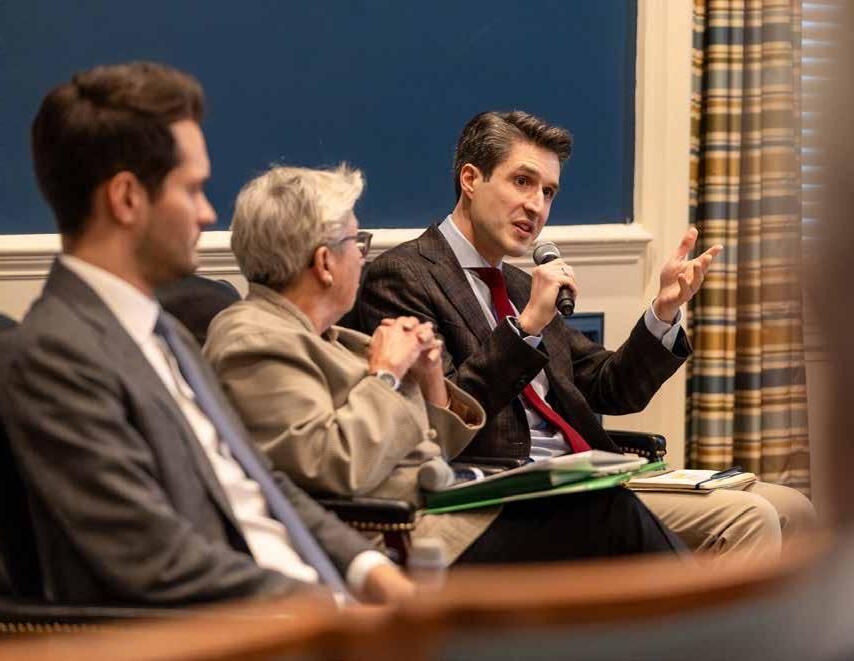
What are the cultural differences in investment philosophy in this field between the US, UK, Switzerland & Asia?
Exploring the various cultural differences in investment philosophy within the US, UK, Switzerland, and Asia reveals unique approaches to creating a positive impact in the world. In Europe, investing for change became a trend among wealthy families due to the limitations of traditional philanthropy laws. This movement, focused on tangible, positive impacts through investment, emerged 20 years ago and has since been responsible for managing the majority of the money invested in ESG impact investing globally.
In Asia, while there is interest in making a positive impact, the focus is more selective and typically centers around topics such as the environment. China, in particular, has taken significant steps to combat the pollution issues that have plagued the country for decades. However, there are still topics that are not adequately addressed in Asia, highlighting a need for greater diversity in the topics considered for investment.
Meanwhile, in the US, philanthropy has always been prevalent, but there is often a distinction between investing for tax advantages and creating a lasting legacy versus investing to effect positive change. Despite this, it
IMPACT INVESTING 6
is essential to recognize the existence of organizations that supersede national borders and operate globally, such as the Peace Innovation Initiative, as some issues require a coordinated, global approach to resolution.

In the UK, a recent study revealed a data problem in some of the reporting surrounding donations, with £7 billion in unaccounted donations. Additionally, people are often uncomfortable discussing wealth and tend to shy away from conversations around philanthropy. However, there are still significant amounts of giving happening in the country, with many individuals and networks working to solve problems without seeking recognition or publicity.
Despite the various approaches and cultural differences in investment philosophy, there is a pressing need for supranational institutions to address issues that cross borders. For instance, the issue of deep-sea ocean mining highlights the need for mechanisms to broker dramatic trade-offs, with the profits potentially being allocated to a fund for future generations. Climate change is an issue that transcends borders and demands urgent attention, but policy remains significantly behind the curve. In conclusion, recognizing cultural differences while striving towards coordinated global action is critical to create a lasting, positive impact on the world.
Are Advisors doing enough?
Recent research in the UK suggests that having a philanthropy-trained advisor can increase end clients’ contributions by 17 times when compared to those who don’t have a trained advisor. Such training unlocks a massive amount of capital, and we have only just begun to scratch the surface of its
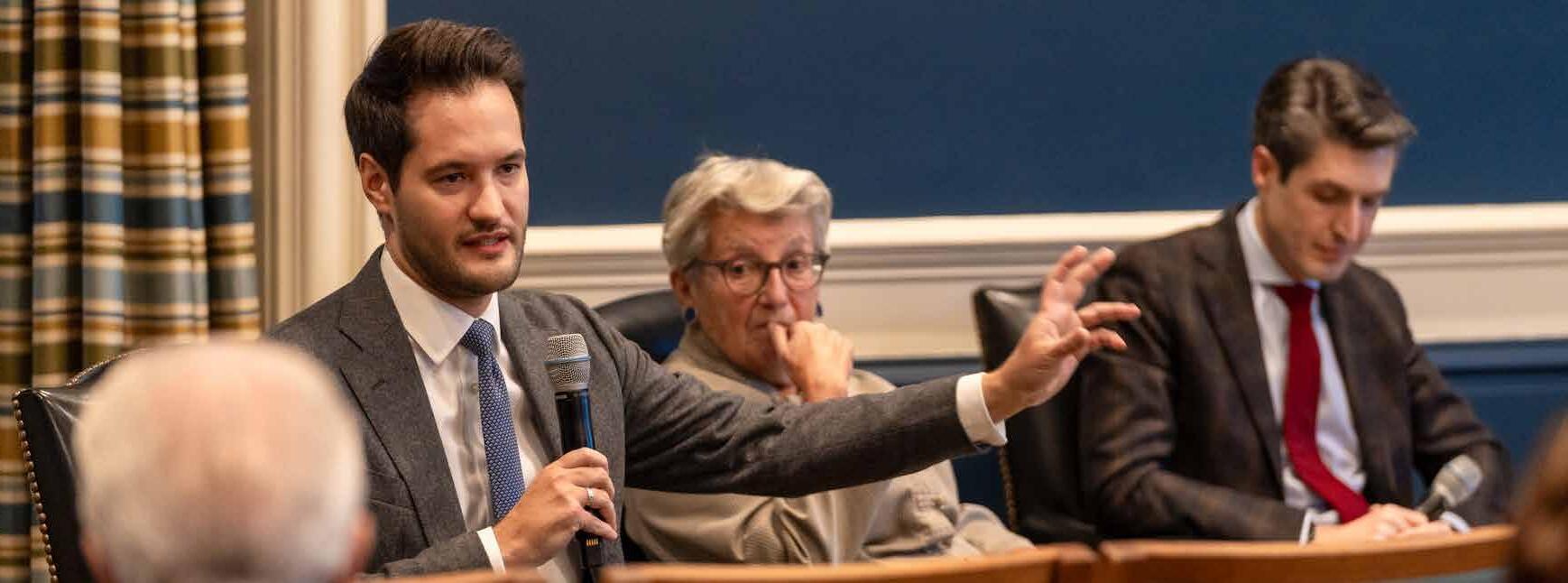
IMPACT INVESTING 7
potential. The prize is worth pursuing, and we must invest in training resources to ensure people are adequately prepared.
Upcoming generations, particularly Gen Z, will demand wealth managers to provide investment solutions that offer returns while making a positive impact. For instance, municipal bonds for U.S. investors provide a tax advantage and are also utilized to build essential infrastructures such as schools, hospitals, and roads. This is just one example of how traditional wealth management goals can align with generating positive impacts.
Specialized products are designed to address specific issues, such as the Forest Resilience Fund, Coral Reef Insurance, and the Rhinoceros Bond. These products enable investment capital to be directed towards targeted services, reinforcing the importance of ecological services as an essential infrastructure.
What do you think about Impact Investment?
Email magazine@pcd.group to let us know your opinions on this topic.
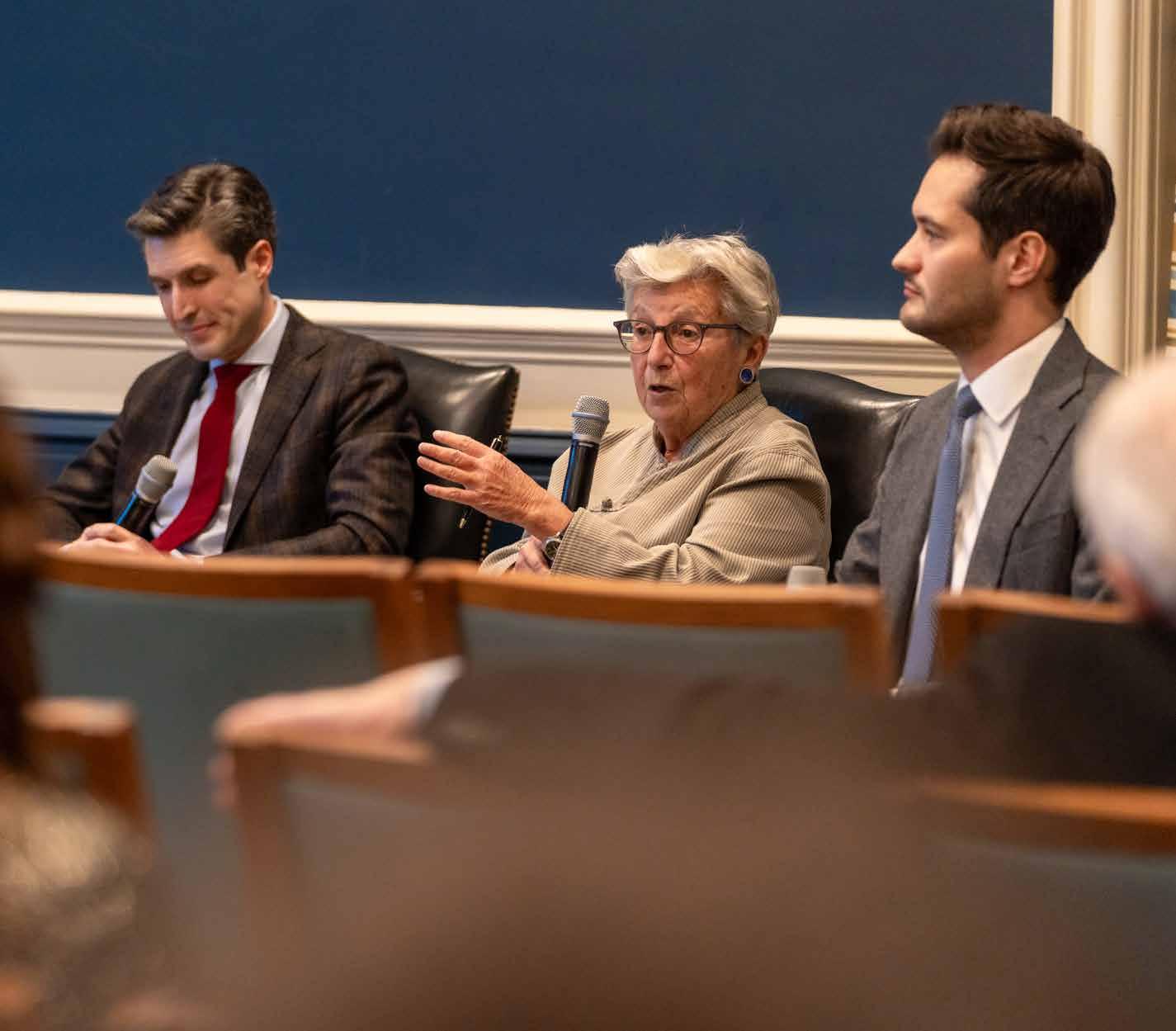
IMPACT INVESTING 8

Impact investing and climate change
Paula DiPerna
Renowned Author; Strategic Environmental Policy and Philanthropic Advisor

During her exclusive interview at the PCD Club dinner in New York, we had the privilege of talking to Paula DiPerna, renowned author and strategic advisor on environmental policy and philanthropy.
With her vast knowledge and experience, Paula discusses the pressing topic of impact investing and its crucial role in addressing urgent environmental concerns, as well as how the mobilisation of wealth can be used to benefit society as a whole.
Her publication, Pricing the Priceless can be purchased here
9
HELPING YOU THRIVE IN A CHANGING WORLD
Moore Stephens in the Channel Islands has been a dedicated provider of specialist trust and corporate administration services for over 50 years.
Our independence allows us to provide a bespoke and friendly service that is tailored to the needs of each of our clients.
At Moore Stephens, our purpose is to help people thrive – our clients, our people, and the communities they live and work in. When you work with Moore Stephens, you will work with people who care deeply about your success and who have the drive and dedication to deliver results. We are passionate about helping our clients achieve their ambitions.

As members of Moore Global, a network with more than 30,000 people comprising 260 independent firms in 112 countries, we can provide an in-depth cultural and technical understanding of different markets around the world meaning our clients can benefit from a global reach and cross border expertise and advice.
www.moorestephensci.com

Moore Stephens Fiduciaries (Guernsey) Limited is regulated by the Guernsey Financial Services Commission and licensed under The Regulation of Fiduciaries, Administration Businesses and Company Directors, etc. (Bailiwick of Guernsey) Law, 2020. MSTC (Jersey) Limited is regulated by the Jersey Financial Services Commission in the conduct of Jersey trust company business under the Financial Services (Jersey) Law 1998 (as amended). Contact our offices in Guernsey or Jersey to find out how we can support you. Guernsey Dustyn Molver Client Services Director E dustyn.molver@mooreci.com T +44 (0)1481 811733 Jersey Joel Smith Client Services Director E joel.smith@mooreci.com T +44 (0)1534 600321
ESG Investments - Three Points to Consider
By Kirstin Roberts | Director | Freeths LLP
By Shraiya Thapa | Lawyer | Freeths LLP W: www.freeths.co.uk
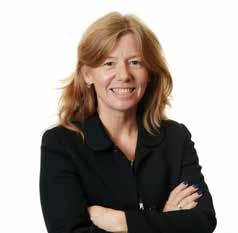

Environmen-
tal, social and governance (ESG) factors have become a key consideration for investors seeking both financial returns and positive impact. These two considerations are not mutually exclusive, and at the same time companies are facing increasing pressure from both their regulators and investors to disclose ESG performance. At Freeths, we advise companies on all aspects of ESG risks and opportunities from a legal perspective.
This article sets out three elements which investors should consider when evaluating new and existing portfolios.
Disclosure requirements and greenwashing
Regulators worldwide are increasingly mandating disclosure of ESG-related information. Investors will be able to review more information than they ever could before and evaluate whether a company’s ESG policies align with their own investment policies. Companies will also be facing new obligations in how they communicate and market their sustainability credentials
to investors. In the UK for example, a new anti-green washing rule will apply from 31 May 2024 to all Financial Conduct Authority (FCA) authorised firms to ensure any investment product references to sustainability are fair, clear and not misleading to investors.
Governance
As stakeholders in companies, investors are well placed to interrogate whether a company has board level commitments to ESG criteria, for example a climate transition plan backed up by robust shareholder rights to hold any such plan to account. Many companies will still be at the beginning of their ESG journeys so evaluating how much investors can engage with decision making will be a key factor, particularly in medium to long term investment decisions.
Risk management
The vast majority of companies

KEY ESG CONSIDERATIONS FOR INVESTORS AND COMPANIES Read in full click here 11
The Three Cs of Employee Sustainability
By Sharon Coburn | Associate Director of People & Culture | Saffery Trust W: www.saffery.com/international/

Sustainability is – or certainly should be – high on the agenda for any business. However, while environmental sustainability is front of mind, employee sustainability is often overlooked. With a firm-wide staff retention rate of 95%, employee sustainability is high on the agenda for our People and Culture team.
The core of sustainability, in any area, revolves around the principle of fulfilling the needs of the current generation without jeopardising the ability of future generations to fulfil their own needs. When putting this ethos into the context of a thriving workforce, an organisation’s culture plays a significant role in both recruitment and retention.
Businesses need to strike a balance between adapting sufficiently to appeal to an emerging generation of future leaders, increasingly driven by values, and preserving the existing situation for team members content with the status quo.
Achieving this balance requires
an internal culture where change is communicated effectively and embraced collaboratively, fostering openness, adaptability, and a shared vision.
We are all familiar with the age-old question: “If a tree falls in the woods, and no one is around to hear it, does it make a sound?”. In a similar vein, if an employer is actively creating progressive policies and procedures and running employee-focused initiatives, but the staff are not made aware, can they have the desired impact?
When it comes to company culture, effective communication can have a big impact on employee perception. It is important for employers and HR professionals to be proactive in ensuring that staff are not only aware of efforts, but perceive them positively, as this directly influences

SUSTAINABILITY IN THE WORKPLACE Read in full click here 12
10th June 2024
Venue: Lagos Metropolitan Club, Victoria Island, Lagos, Nigeria
Panel 1: Wealth Preservation Strategies:
Exploring effective methods to protect and preserve personal wealth in a dynamic economic landscape
Panel 2: Global Investment Trends:
Analysing emerging trends and opportunities in the global financial markets for private wealth management
Panel 3: Art and Collectibles as Investments:
Exploring the value and challenges of investing in art and collectibles as part of a diversified portfolio

Panel 4: Digital Transformation in Wealth Management:
Exploring the role of technology and digital tools in optimising wealth management and client services
Panel 5: Tax Efficiency Strategies:
Examining legal and ethical methods to minimise tax liabilities and optimise wealth structures
Panel 6: Wealth with Purpose:
Navigating the Intersection of Philanthropy and Private Wealth Management

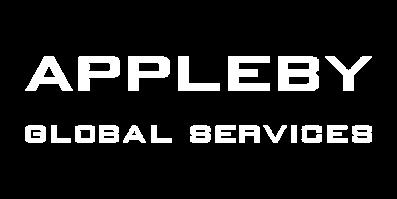
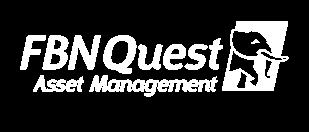





Find out more hnwadvisorevents.com 13
Investment Migration Is a Sustainable Win–Win
By Dominic Volek | Group Head of Private Clients | Henley & Partners W: www.henleyglobal.com
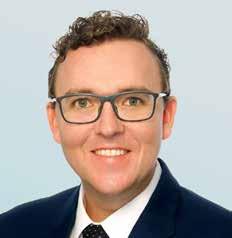
In an increasingly unpredictable world, the desire and necessity to secure greater global access and optionality has skyrocketed. As noted in the Henley Wealth and Sustainability Report, more and more clients and governments are seeing investment migration as a mechanism to mitigate sustainability risks.
A resilience-boosting tool
Investors and their wealth managers are concerned about sustainability, and climate change in particular is an increasingly significant driver in decision making and in preparing for the future.
High- and ultra-high-net-worth investors from emerging and advanced economies alike are seeking out alternative business, career, educational, and lifestyle opportunities on a global scale, enhancing their options and transcending the limitations of their countries of origin to improve the resilience of their portfolios and ensure physical and financial longevity. Acquiring alternative residence and/or citizenship by participating in reputa-
ble programs enables greater flexibility and participation in the world’s leading economies, as well as increased optionality, which is fast becoming an essential part of any family’s insurance policy for the 21st century. The more jurisdictions a family can access, the more diversified its assets, and the lower its exposure to country-specific, regional, and global volatility.
The Henley Wealth and Sustainability Report analyzes G7 and BRICS nations and a selection of countries that offer investment migration programs across five key sustainability and wealth parameters including population density and CO2 emissions per capita, achievement of the UN’s Sustainable Development Goals, and unique wealth-tier and wealth per capita data. Global citizens and investors seeking to improve their resilience to the impacts of climate change through investment migration can explore program options and
SUSTAINABLE INVESTMENT MIGRATION
here 14
Read in full click
Investing with Purpose: How Sustainable Strategies Drive Positive Change
By Francoise Bougourd | Director | Highvern Guernsey & Katie Douglas | Associate Director | Highvern Jersey W: www.highvern.com


There is greater recognition across all generations, that for a family and its wealth to be successful long term, we have to look at a more holistic approach to sustainability that includes stewardship of the planet on which we rely.
Alongside the more traditional dynastic family structures, we are now working with not only next-generation successors, but also next-generation wealth creators who are looking to the future with sustainability at the core of their decision-making. It’s these younger clients who are particularly digital and ESG focused and have an appetite and opportunity, whether inheriting or creating, to make a real change.
ESG investing might be increasingly prevalent in portfolios across the industry, but at HIGHVERN, we work with our clients to create individually tailored solutions that meet their personal and family goals, while also protecting and enhancing their wealth. Trust and relationships are
critical when working within family structures and we need to be adaptable and responsive to individual needs and values, as well as the rapidly changing investment and technological landscape.
Recently, we worked with a family that had varying levels of engagement, ambitions, and needs. Their diverse assets include commercial property in the form of a large business park, that had over the years become partially self-sufficient by using renewable energy. One family member was particularly keen to be part of the sustainable ethos and asked us to investigate a renewable energy source for investment. We worked in close partnership with them to invest in the renewable energy business that not only provided sustainable energy for the business park, but also benefitted the rest of the family who invested in the project. We saw a power

NATURE IN PERIL: A CALL TO ACTION Read in full click here 15
Financing the Nature Transition: a holistiQ Approach
By Marc Palahi | Chief Nature Officer at Lombard Odier Group | Lombard Odier & Laura Garcia | Nature Specialist at Lombard Odier Investment Managers | Lombard Odier W: www.lombardodier.com
Nature, our keystone asset, at risk
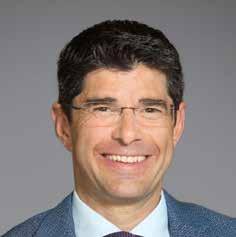
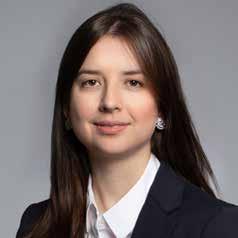
Despite our growing dependence on nature, its global condition has been deteriorating for decades. Since the 1990s, produced capital, including roads and factories, has doubled while natural capital has declined by 40%. Nature and biodiversity loss are closely tied to climate change, as ecosystems, remove more than 60% of anthropogenic carbon emissions. However, climate change and related risks like wildfires, droughts and pests are reducing nature’s ability to provide climate mitigation and adaptation services, and in some instances, can transform natural sinks into substantial sources of greenhouse gas emissions (GHGs).
In 2023, wildfires in Canada emitted 1,740 megatons of CO2, around three times the country’s annual GHGs. Wildfires have devastating impacts, including costs for fire suppression, property damage and increased insurance claims, amounting to a total of USD $10 billion annually. Insured
losses from natural catastrophes, including those related to climate change, have been increasing over the last decades. Since 2017, average annual insured losses have exceeded USD $110 billion, more than doubling the previous five-year average of USD $52 billion. Climate change and related extreme events will also threaten price stability. A recent scientific study estimated that rising temperatures may cause food prices to increase by 3.2% per year . In an increasingly changing environment, investing in nature is a very cost-effective way to reduce climate and disaster risk while enhancing the adaptation of ecosystems, and therefore of our economic system.
Rethinking our economy: towards a Nature-based Economy
To ensure sustainable well-being

LOMBARD ODIER, SYSTEM CHANGE
16
Read in full click here
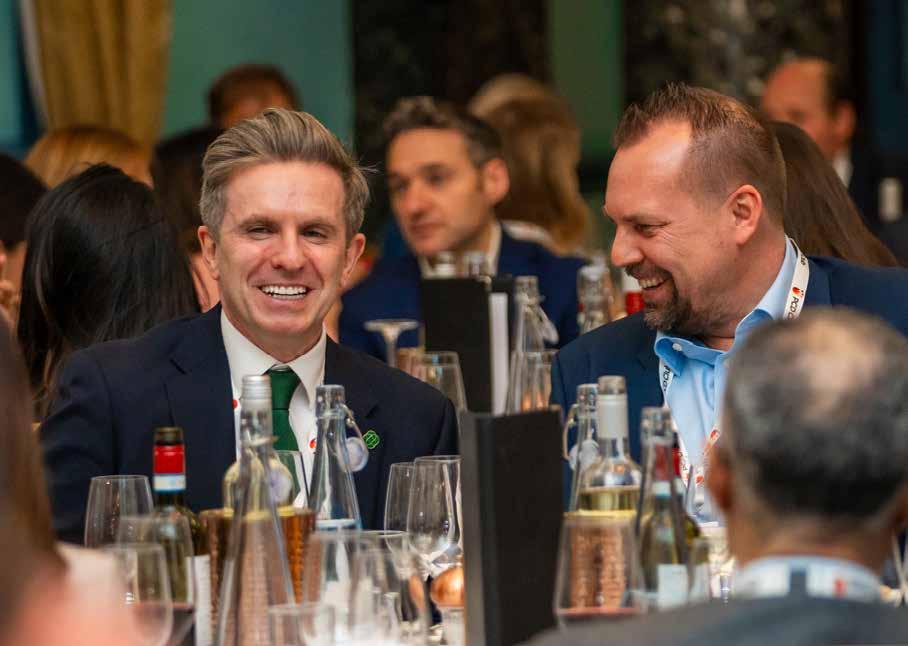
sponsors
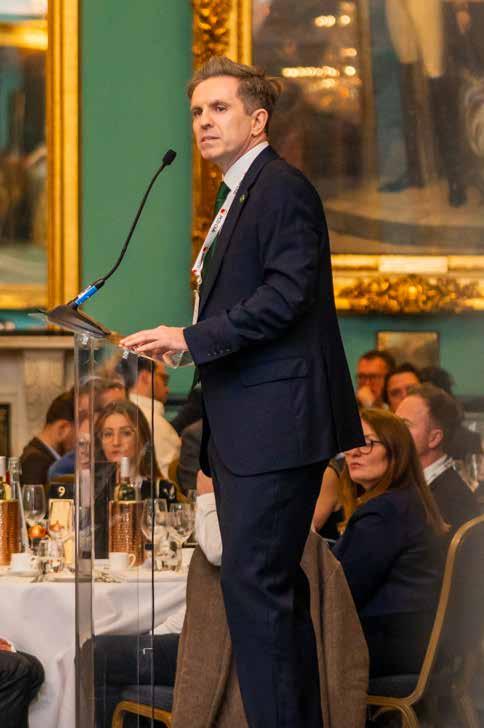
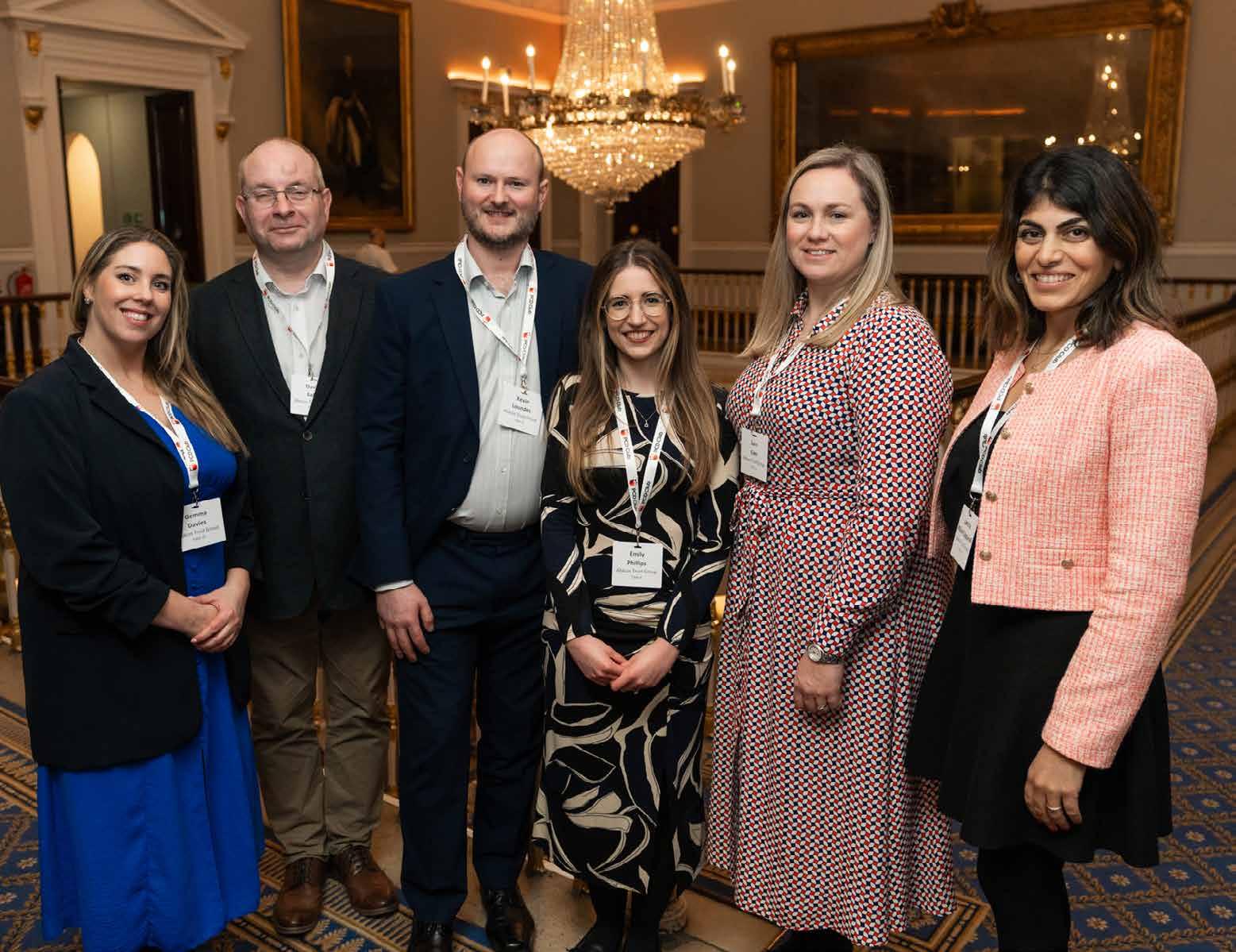
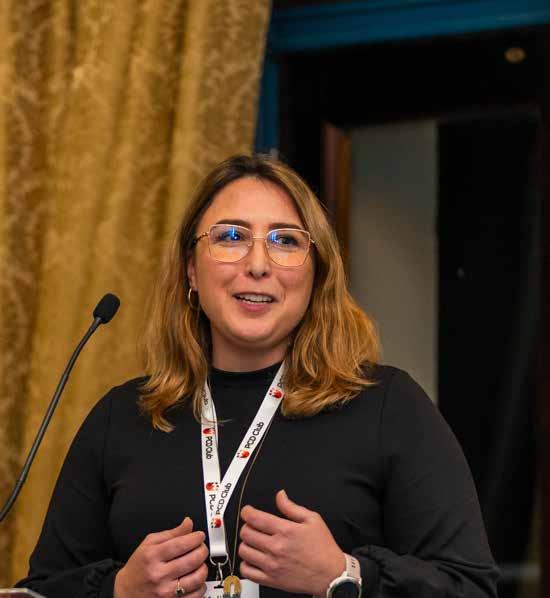
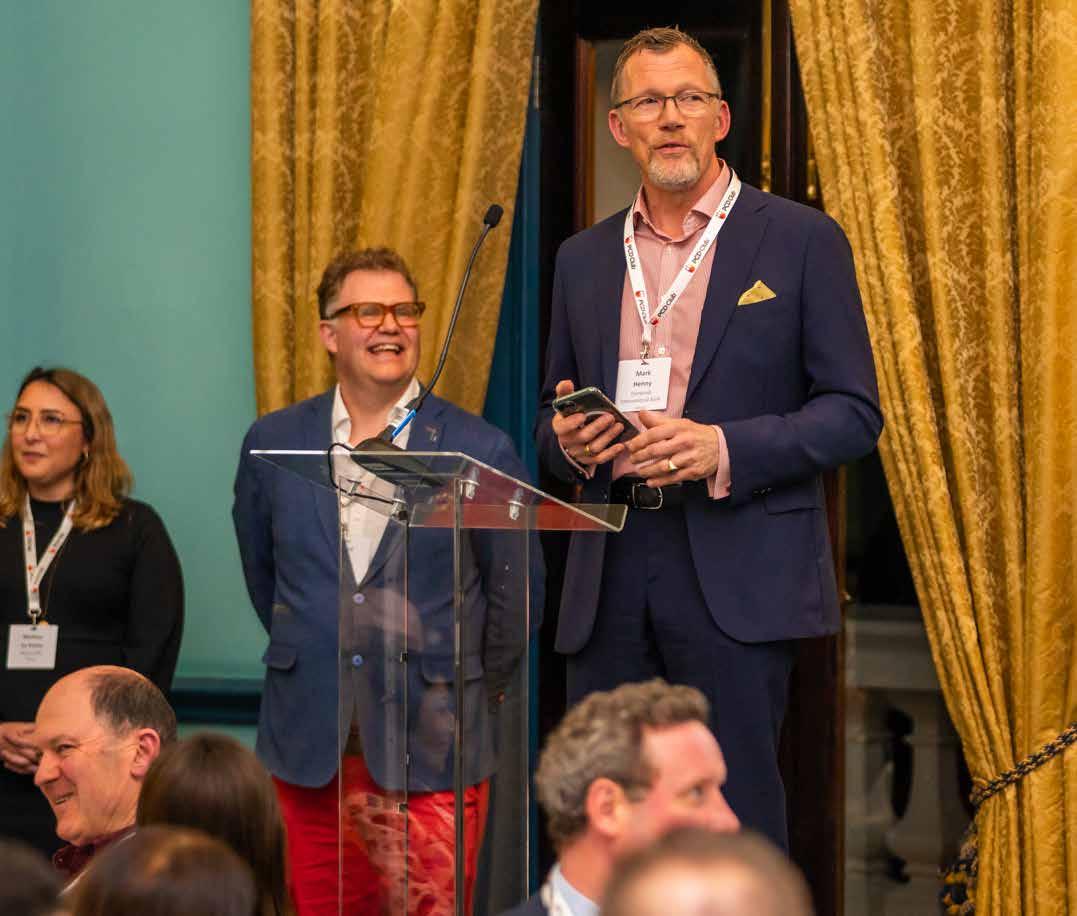



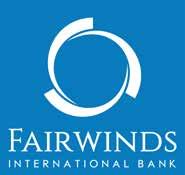

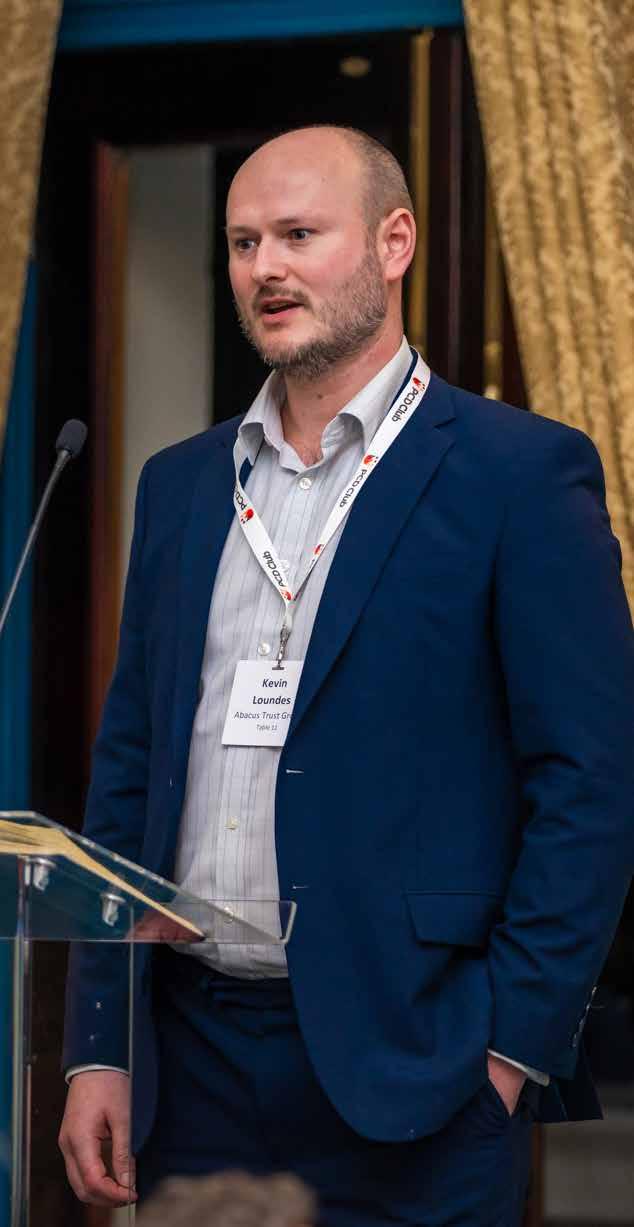
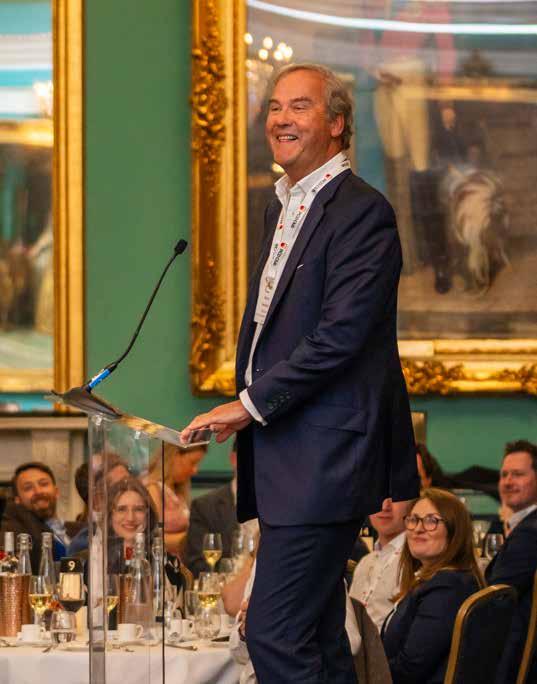

116 Pall Mall | 7 March 2024 #makeithappen
Abacus Trust Group
Kevin Loundes, Abacus Trust Group
Jason Connon, Provenance Insurance Brokers
Silver Sponsor: Mark Henny, Fairwinds
Harry Herbert, Highclere
Sponsors
Mark Henny, Fairwinds
Melissa La Venia, Moore DM
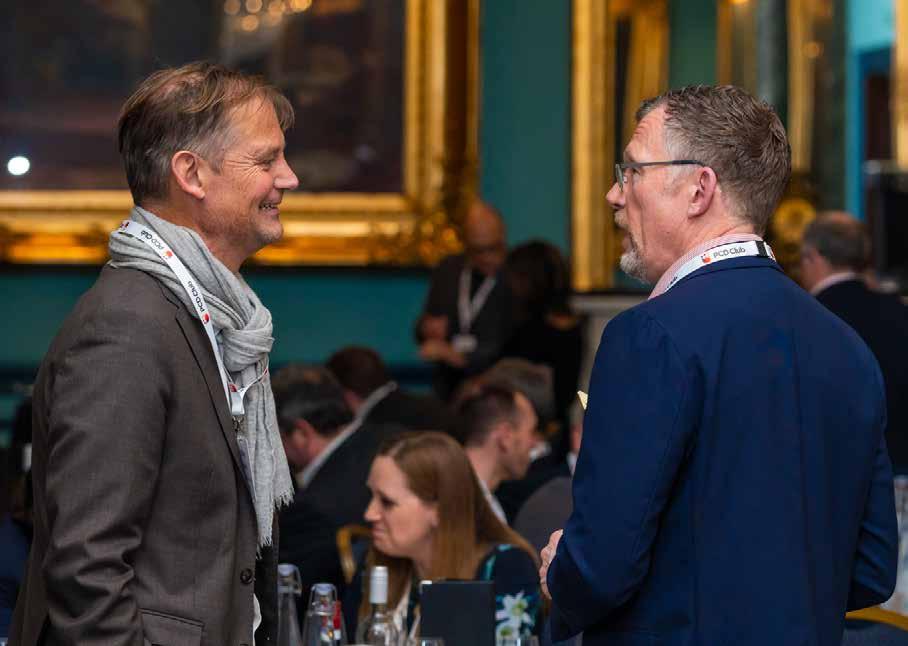

Members & Guests
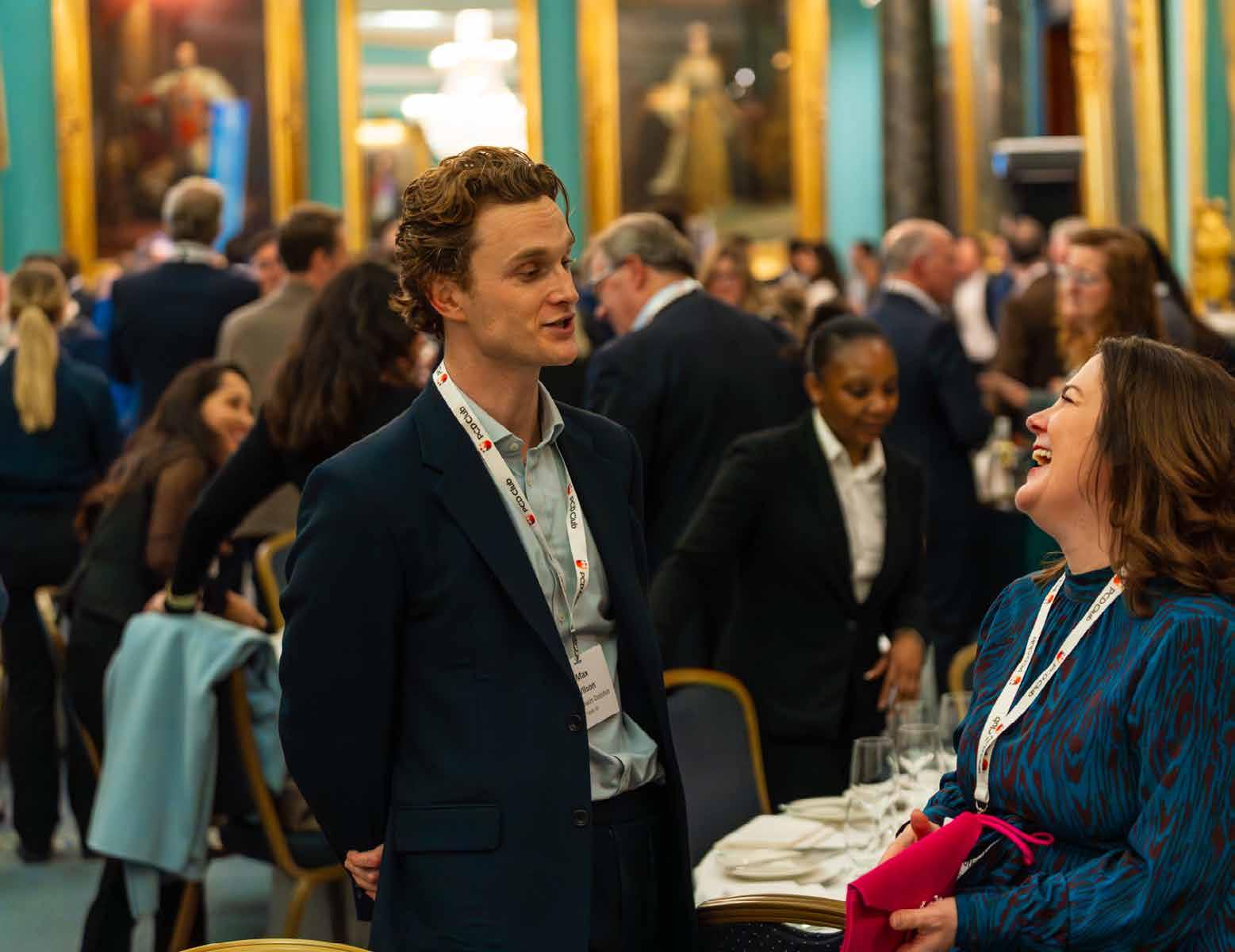

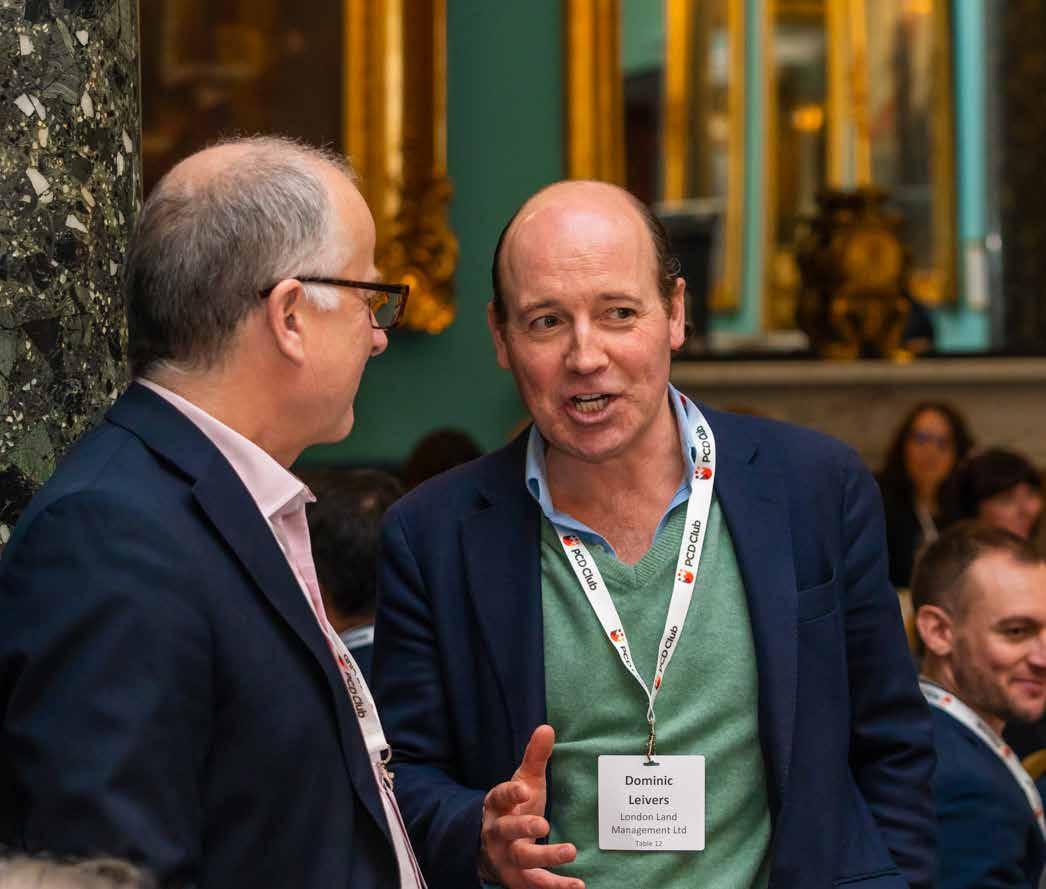
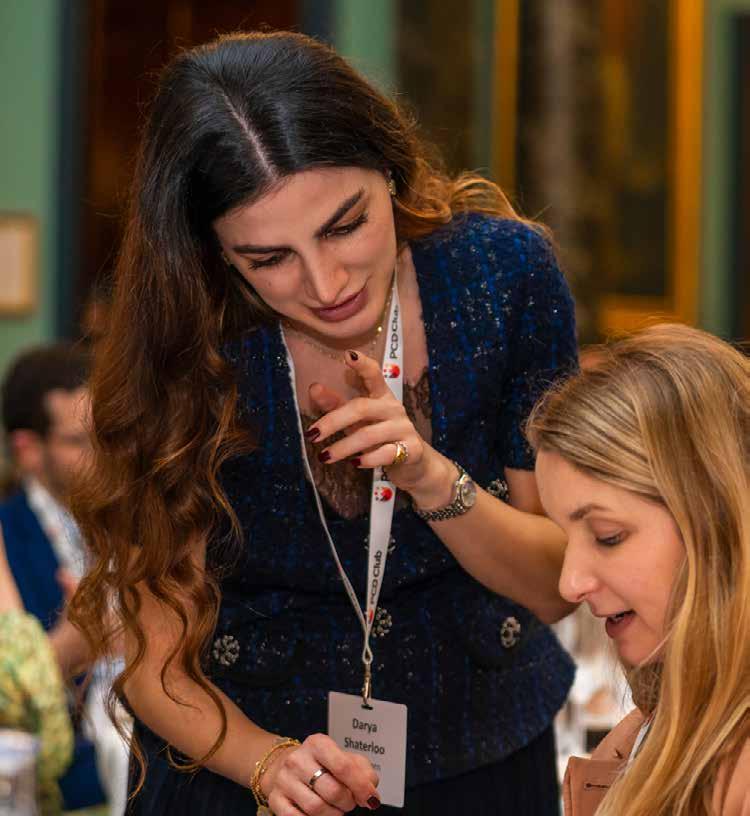
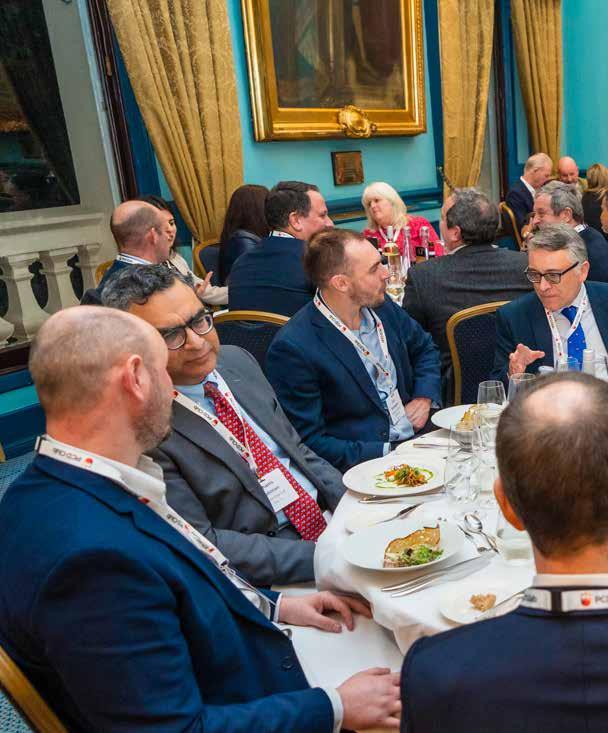
 Leah Alexander, Duncan Aviation
Leah Alexander, Duncan Aviation
Land
Ltd
David
Lewis, USTAXFS Dominic Leivers, London
Management
Caroline Flagg, Praetura Ventures Oscar Relier, Swiss Private Finance
Max Wilson, RBC Brewin Dolphin
Hannah Southon, Sinclair Gibson LLP
116 Pall Mall |
Darya Shaterloo, Hectocorn

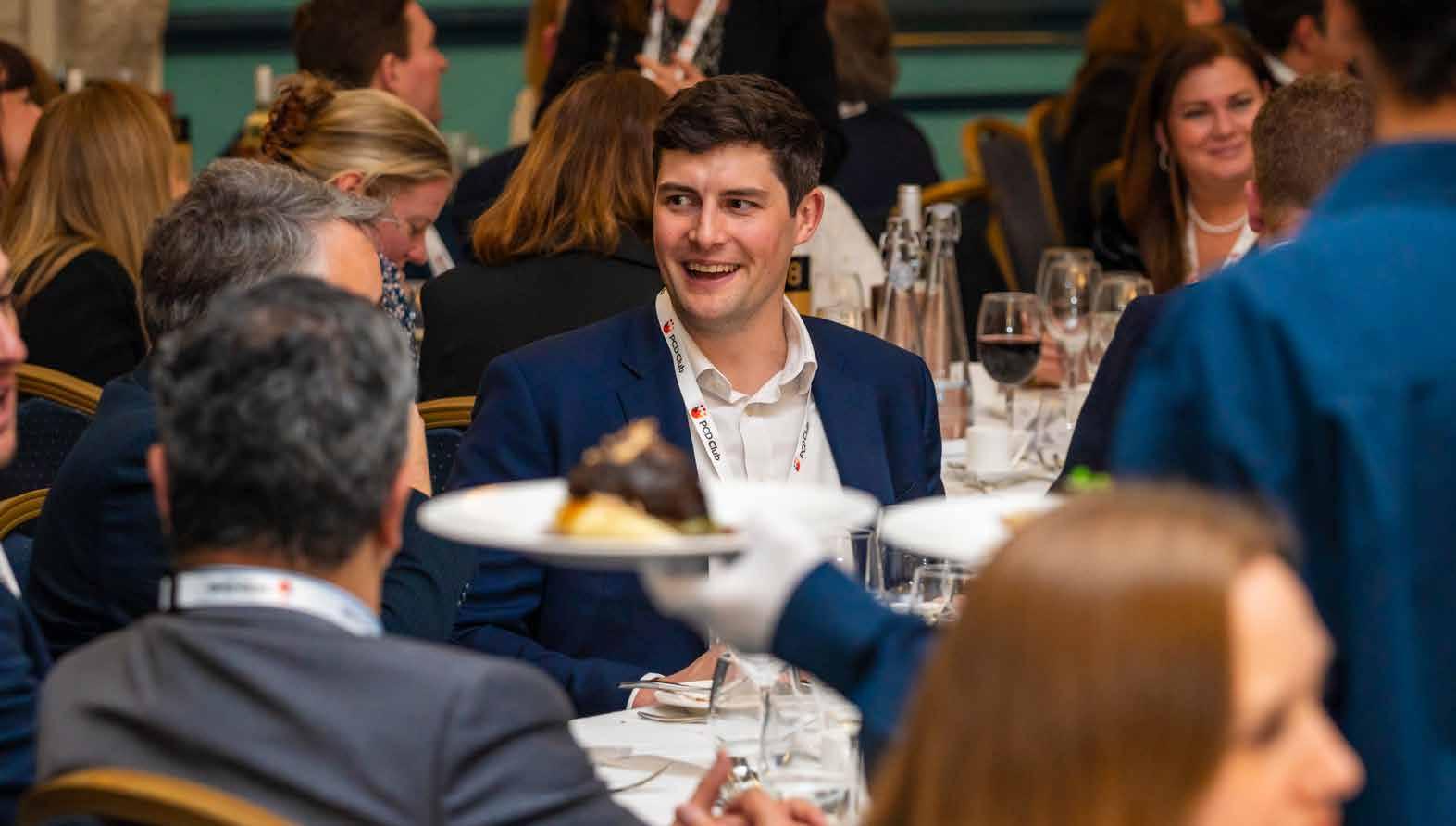

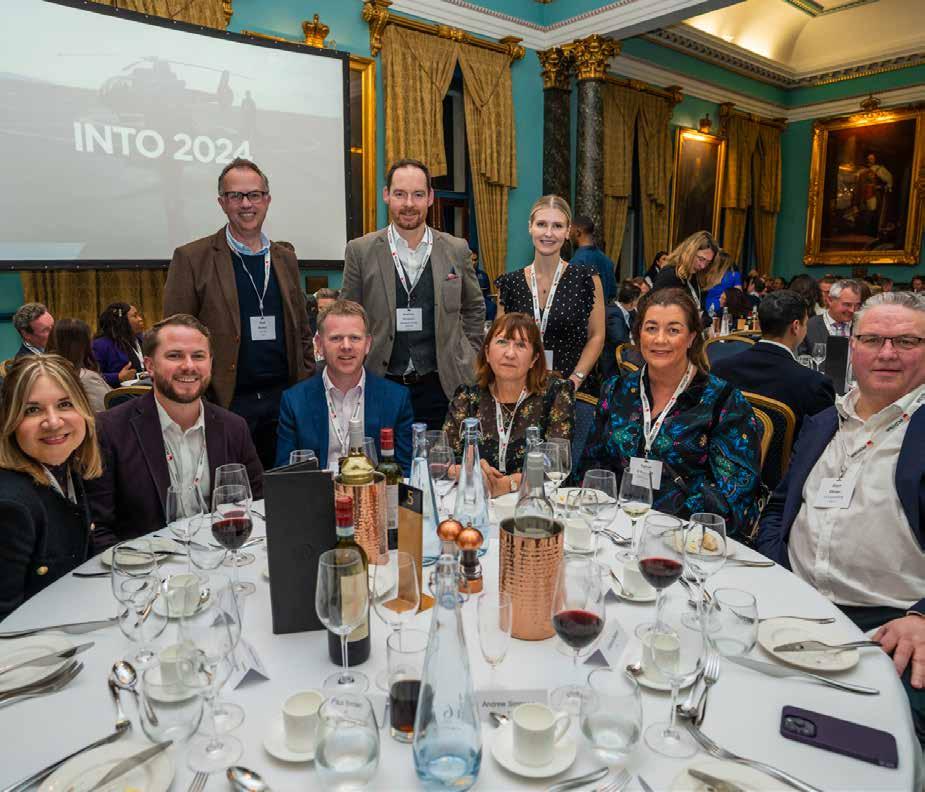



March 2024
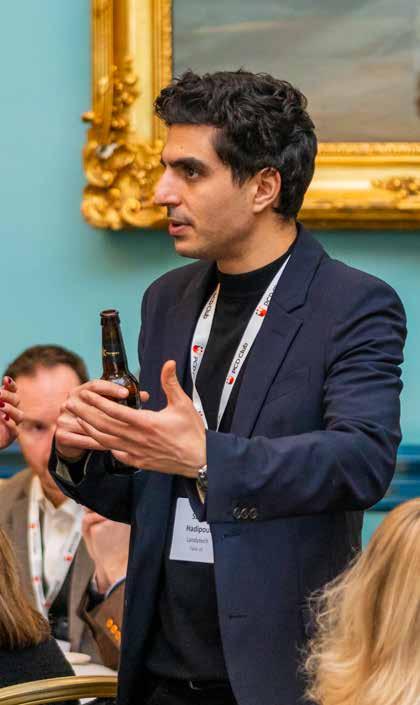
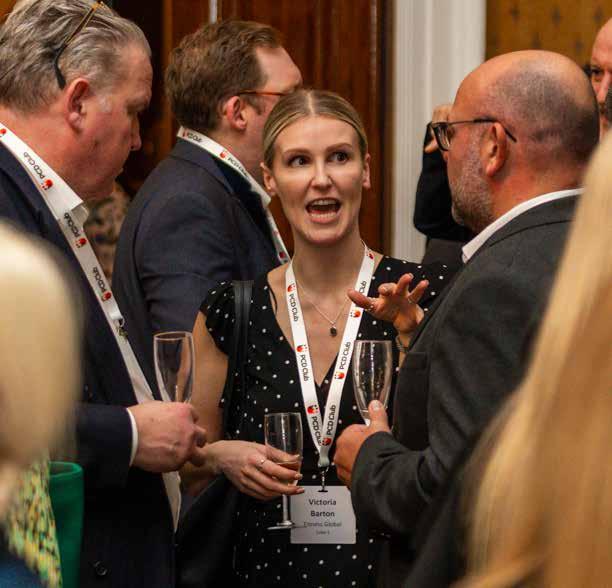
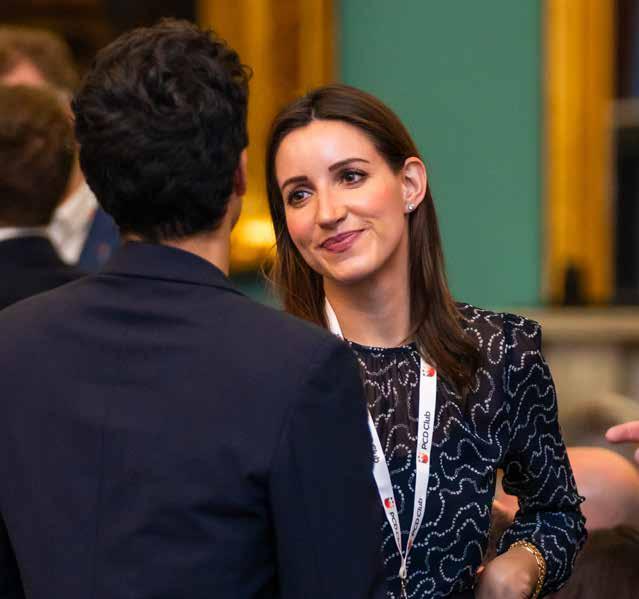
7
Networking at the reception drinks
Fairwinds & Guests
Victoria Barton, Enness Global
Saami Hadipour, Landytech
Katherine Jory, Goldman Sachs
James Poland, RBC Brewin Dolpin
the big interview with Crestbridge’s award winning ceo
With Heather Tibbo, CEO | Crestbridge Family Office Services

Crestbridge Family Office Services CEO Heather Tibbo has helped grow the business into one of the industry’s most innovative and successful firms. A lawyer by training, Heather has featured in ePrivateclient’s 50 Most Influential List for five consecutive years and has been the recipient of a number of other prestigious awards and accolades. We recently met in London to discuss the sector’s latest trends, and what the future has in store for this thriving and dynamic enterprise.
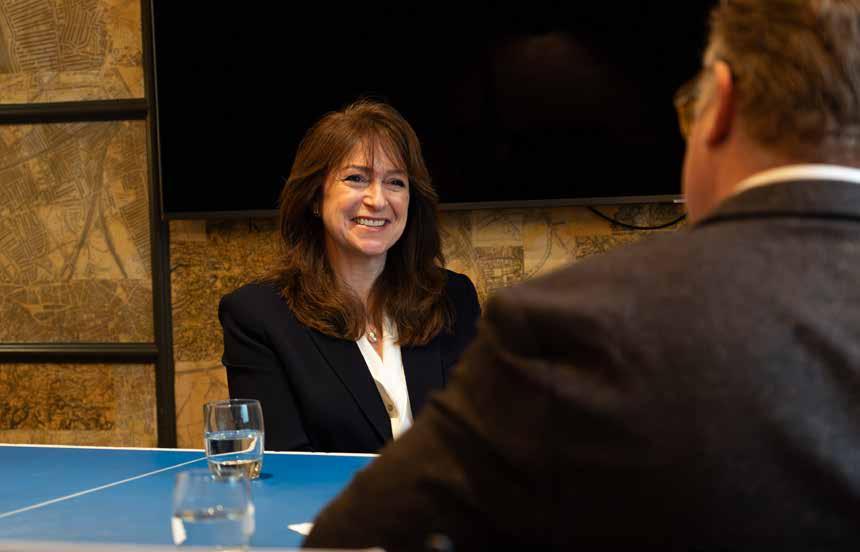
Tell me a bit about what’s been happening in the business over the last year or so.
It’s been an exciting and extremely busy year for us. In 2023 New Yorkbased Fund Services firm Gen II agreed to purchase the Crestbridge institutional business. With the acquisition now complete our private client business Crestbridge Family Office
Services has maintained its status as a privately owned and independent provider, and we have ambitious plans for how we can continue to grow, both in scale and reputation. We have also been celebrating our ten-year anniversary, and we recently moved to new offices in the heart of St Helier.
In early 2020 you also launched Crestbridge Fiduciary with leading US Fiduciary Services provider Willow Street. How are things progressing across the Atlantic?
One of the many benefits of our independence and private ownership is our ability to respond quickly to trends we identify in the marketplace. We were one of the first in our sector to recognise the growing importance of the US as a destination of choice for international families, and our vision and values were a strong fit with those of Willow Street. The venture has gone from strength to strength, and is greatly helped by Willow Street’s Wyoming location, which offers a number of valuable jurisdictional advantages to our clients. It is notable that, since establishing Crestbridge Fiduciary, a number of others in the private client sector have followed suit. We were also
THE INDUSTRY’S MOST INNOVATIVE AND SUCCESSFUL FIRMS
20
pleased to have recently appointed industry professional Darrell King as Managing Director, Americas, based in New York.
You are always quick to recognise and praise your team when you receive industry awards and other accolades. Tell us about your team, and its culture.
Everything we accomplish is a team effort. Regardless of who is being recognised or awarded I try never to lose sight of that. We also work hard to maintain a structure and organisational culture that allows everyone to feel heard, valued, and empowered. We are extremely aware of the fact that the only way we can continue delivering the high standard of service and support that our clients have come to expect is to first ensure that we are looking after one another, and working together towards common goals. Our business is ultimately the sum of its people, and I strongly encourage our leadership team to make the employee experience a top strategic priority.
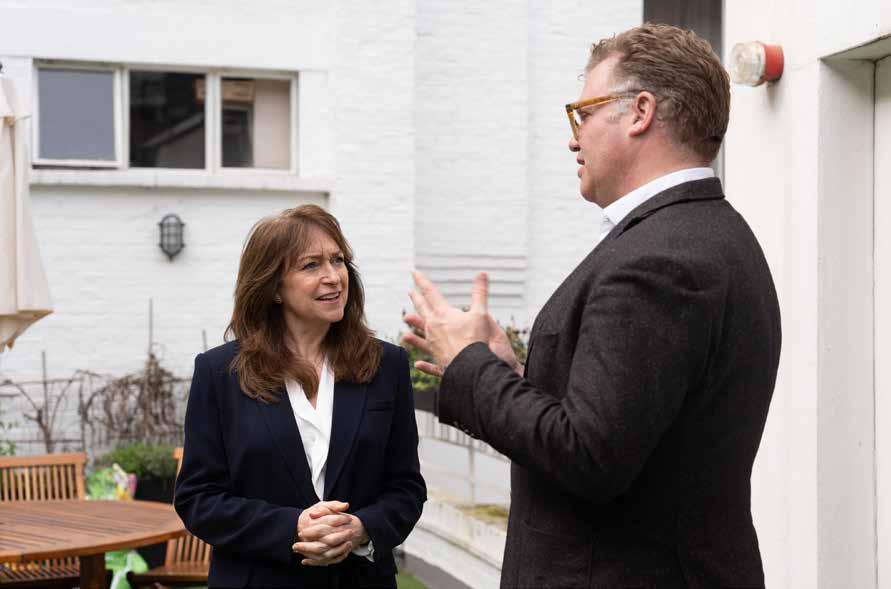
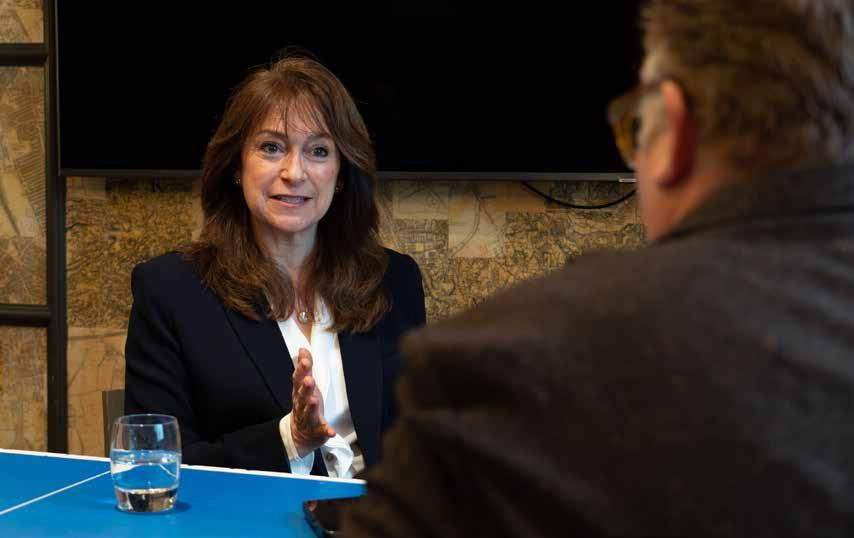
As a Channel Islands business the pool of available talent is obviously finite. How do you approach recruitment, and ensure that the culture of the firm is preserved?
Finding good people is certainly something upon which we focus a lot of our attention. We have worked hard to create and preserve a collaborative, supportive culture within the firm so recruitment is as much about fit as it is about experience and technical skill. The firm continues to grow strongly, and we have also recently implemented some organisational changes following the sale of the Crestbridge institutional business.
These included the strengthening of our senior central services team who, by providing a more robust layer of managerial support, are enabling our leadership team to be more focused ‘on’ the business – our clients and
THE INDUSTRY’S MOST INNOVATIVE AND SUCCESSFUL FIRMS Read in full click here 21
Titan Wealth: How they are building their business & approach to investing
By James Kaberry, Executive Chairman and Joint-CEO | Titan Wealth Holdings & Ian Wood, Chief Investment Officer | Titan Wealth Holdings
In a recent interview, James Kaberry, co-CEO of Titan Wealth, shared valuable insights into the wealth management industry and his strategies for company building. We were curious by Titan Wealth’s impressive growth, fuelled by a successful acquisition trail.
James highlighted potential opportunities in alternative markets for smaller investors and discussed the impact of changing consumer behaviour and regulatory environments.
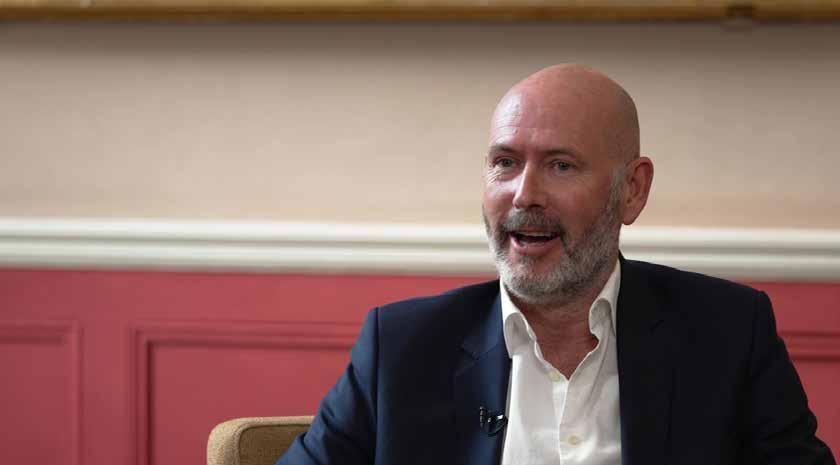
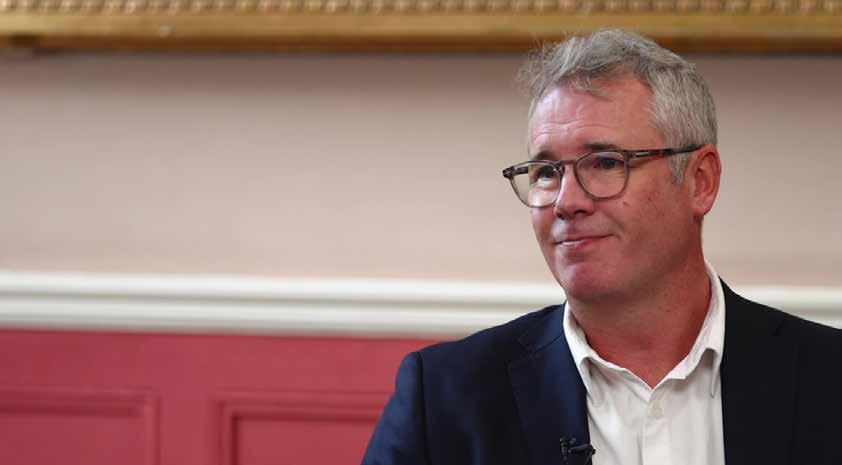
In a separate conversation, David Bell interviewed Ian Wood, Chief Investment Officer at Titan Private Wealth, about his approach to investing, his favourite stocks and portfolio construction strategies. Ian provided insights into managing clients’ money and shared his thoughts on a luxury goods brand known for its remarkable growth and pricing power.
Learn more about Titan Wealth’s expansion into overseas markets and the outlook for 2024, watch the interviews here:
Building a modern Wealth Management business with James Kaberry, Co-CEO at Titan Wealth
They’ve been on quite an acquisition trail and there’s a great growth story behind the business.

Titan’s Ian Wood on his favourite stocks & managing money for clients
They discuss the nuances of managing money for clients & insights into a wellknown luxury goods brand.
TITAN WEALTH HOLDINGS
22
Opportunities Securitization Vehicle in Luxembourg
By Gregoire Mure | CEO | TrustConsult Group W: www.trustconsultgroup.com
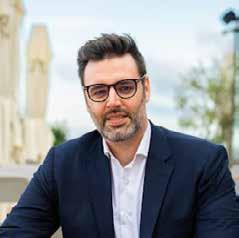
The Luxembourg has long been recognized as a financial hub and a favorable jurisdiction for various investment structures.
Luxembourg generally exhibits a strong and stable economic situation, and is known to be one of the most prosperous countries in the European Union, and several factors contribute to its financial stability.
The financial sector, in particular, is a key player in the Luxembourgish economy, with a well-established international financial center attracting global financial institutions and investors. The country has also cultivated a business-friendly environment characterized by favorable investment policies, attractive tax benefits, and a skilled workforce. In recent years, there has been a growing interest in incorporating securitization vehicles.
Securitization is the process of transforming illiquid assets into marketable securities, has gained prominence as a financial strategy.
This short article explores the reasons behind the increasing interest in establishing securitization vehicles and the advantages that this jurisdiction offers.
Regulatory Framework
The securitization vehicles can be categorized into two main types: those regulated by the Commission de Surveillance du Secteur Financier (CSSF) and those that operate without direct oversight from the CSSF. Regulated securitization vehicles adhere to strict guidelines and oversight imposed by the CSSF, ensuring compliance with legal and regulatory requirements aimed at protecting investors and maintaining financial stability.
On the other hand, non-regulated securitization vehicles operate without direct supervision from the CSSF
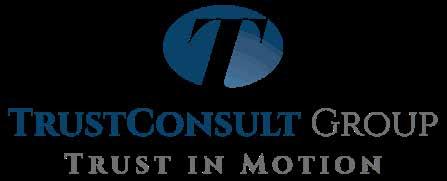
LUXEMBOURG SECURITIZATION VEHICLE Read in full click here 23

 By David Bell, Founder | PCD Group
By David Bell, Founder | PCD Group

Brooks Education for a series of meetings on the topic of UK Education for South African families. As part of the agenda, we hosted two receptions in Cape Town and Johannesburg to meet with parents and intermediaries who wanted to find out more. We were delighted to partner with Jersey Finance for the Johannesburg event.
When I raised the concept with Dr. Rufaro Nyakatawa, she saw the opportunity for a reception event. Although education is not always raised by private wealth advisors who tend to focus on investment or tax matters at hand, it is
an engaging topic for their clients. The local professional contacts she maintains are all interested in international trends and have clients with investments and business interests overseas.
Jersey is well positioned to help high net worth families with family members or investments in the UK, due to its proximity and experience in dealing with such situations. Jersey’s private wealth sector is by far the largest in terms of assets administered – the figure for assets under management in Jersey was £1.14 trillion in 2020, as found by research conducted by the Centre of Economics and Business Research (Cebr).
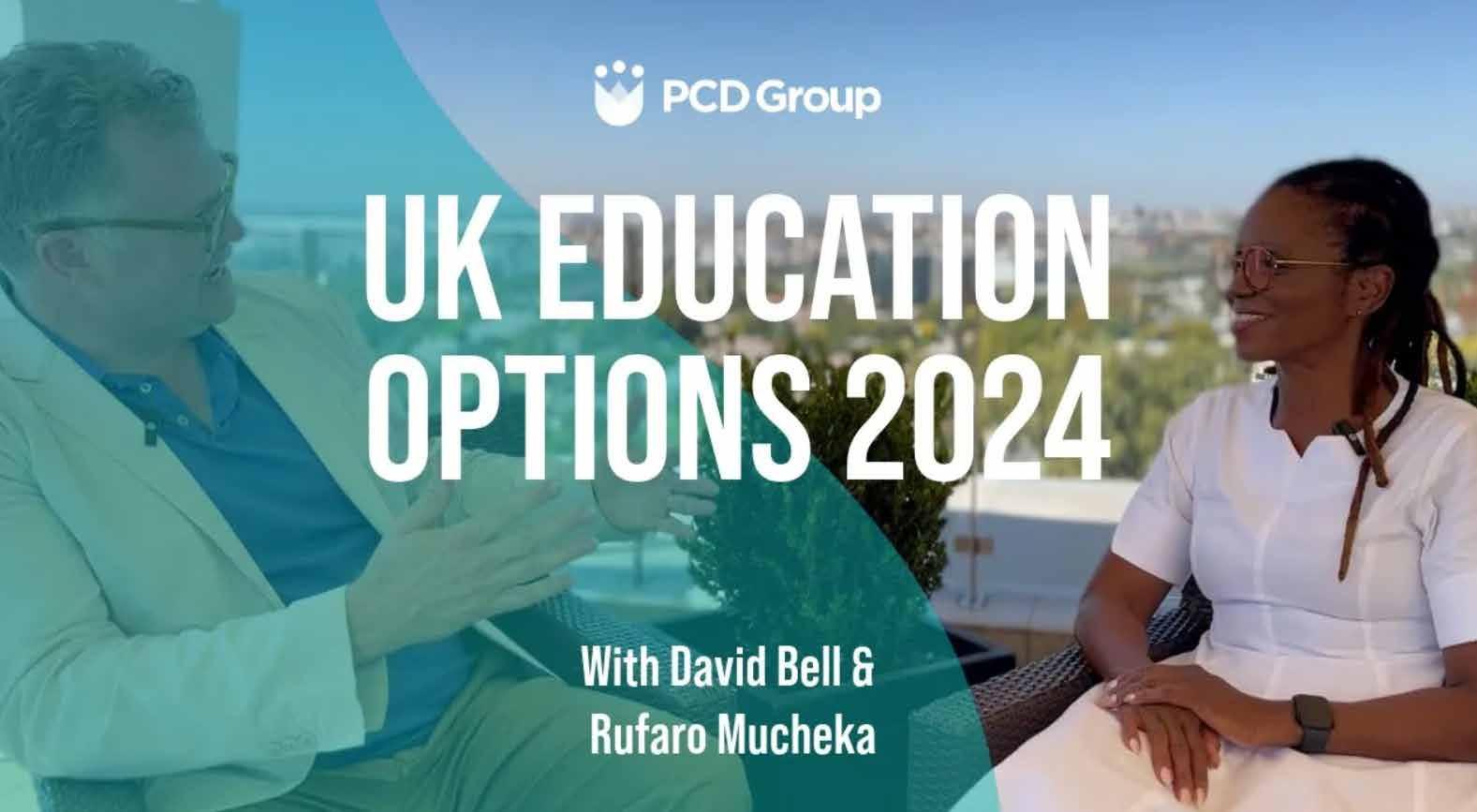
24
The research also showed that £62 billion of UK economic activity each year on average was supported by Jersey, representing 2.9% of total UK output facilitated by Jersey’s financial services industry. Education of the next generation is also a key part of succession planning, which is another core topic for Jersey professionals engaging with their clients and counterparts in South Africa.
As part of the event, Mark Clubb, Executive Chairman of Team Asset Management in Jersey gave an engaging presentation on the cost of private education in the UK but also shared ideas on how parents can plan and prepare to achieve their goals: “Planning for education expenses is just another brick in the finance wall.”

Mark talked through the inflation of costs and warned parents against paying fees as they go, as it exposes them to risks, highlighting the need for financial planning - life cover, and education protection in case the worst were to happen. On the investment front, Mark described the diligent process of Team Asset Management to manage risk and volatility to “stay in the game, no
surprises”. He highlighted the power of compounding in investing but also the various factors that can wipe out returns.
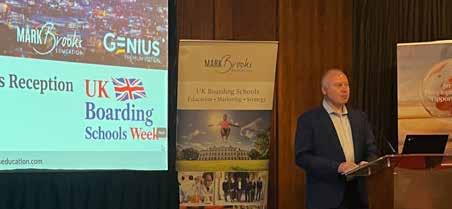
said this about the Johannesburg reception and collaboration with Jersey Finance: “A first-class UK boarding or day school education is the ambition for the many parents we met during the trip. The highlight was the gathering of nearly 60 advisors, parents, and school leaders from TASIS England, LVS Ascot and Dukes Education, in one excellent evening to discuss how they can achieve this, and how it will transform the lives of their daughters and sons.”
If you want to find out more about saving for education or other investment goals, contact Team Asset Management visit their website here.
If you want to follow Jersey Finance’s activity in South Africa, reach out to Dr. Rufaro Nyakatawa on Linkedin or read on here.

 Mark Brooks, Founder of Mark Brooks Education
Mark Brooks, Founder of Mark Brooks Education
UK EDUCATION OPTIONS - SOUTH AFRICA ROAD SHOW 25
Holding of a Foreign Bank Account and Succession Issues
By Atiq Anjarwalla | Senior Partner | Anjarwalla, Collins & Haidermota
By Mona Doshi | Partner | ALN Kenya | Anjarwalla & Khanna
By Devvrat Periwal | Partner | AC&H Legal Consultants W: www.aln.africa/our-offices/anjarwalla-khanna/
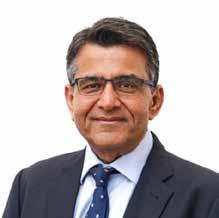
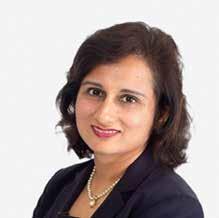
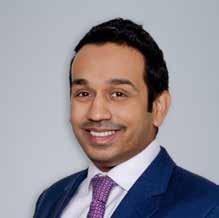
High net worth individuals hold bank accounts in different jurisdictions like Singapore, England, Dubai and Switzerland. These accounts are an asset of the account holder and will form a part of the individual’s estate on death. Consequently, the legal issues which might arise on the death of the account holder need to be carefully considered.
Key Issues to Note
1. The first point to consider is the booking office of the account. An account holder may have a relationship with his bankers in Dubai. However, if the account is ‘booked’ (held and operated) in Singapore (the booking office), for example, then the laws of Singapore will prima facie be relevant to the account. Although it may be possible to use a will prepared in accordance with the laws of the account holder’s domicile (usually the account holder’s home jurisdiction) in respect to the Singapore account, the account holder may wish to have a Singapore will limited only to his Singapore account. In this case, the form of the Singapore
will must accord with the requirements of Singapore law.
2. The advantages of having a written will would be apparent to most. A primary advantage is that an individual can, generally speaking, decide on his executors and the class of beneficiaries, including confirming the proportionate share to be gifted to each beneficiary. In the event a will is not made, most countries have intestacy rules which will regulate the disposal of a deceased’s assets by identifying beneficiaries and the proportionate share of the estate to be enjoyed by each beneficiary. As intestacy rules are fixed, the deceased may inadvertently benefit an individual he did not intend to benefit (for example, an estranged child or sibling) or bequeath a larger share of his assets to certain beneficiaries.

CROSS-BORDER BANKING: ADDRESSING SUCCESSION MATTERS Read in full click here 26
Meet Our Members
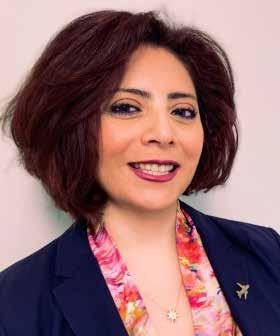



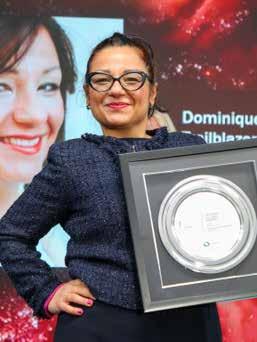 Alicea Castellanos CEO and Founder of Global Taxes
Alicea Castellanos CEO and Founder of Global Taxes
What do you do for Global Taxes?
“As CEO and Founder of Global Taxes LLC, I lead a team dedicated to delivering tailored solutions that address the complex tax needs of our clients. I oversee all aspects of client engagements, from initial consultations to the implementation of tax strategies and ongoing compliance efforts.”
Read in full click here
Krupa Thakker
Associate Solicitor from Druces LLP
What do you do for Druces LLP?
“I am an associate solicitor in the Private Wealth team at Druces LLP. I act for a wide range of clients from individuals and families both domestic and international. My breadth of private client work includes, but is not limited to, wills and estate planning, probate and estate administration, trust administration and Court of Protection work”
Read in full click here
Dominique Calcò Labbruzzo Founder of Holistic Law Firm
What do you do for your holistic law firm?
“In my role as a business attorney and international holistic lawyer, I adopt a comprehensive approach that goes beyond traditional legal practices. I not only address legal issues but also integrate life and business coaching.”
Read in full click here

Praxis launches new CoSec offering as part of its corporate services expansion
Praxis Group is continuing the expansion of its international corporate services division with the launch of an extended range of solutions in the company secretarial space.
Read in full click here

pcd.media /filmwithus


We will help you develop an effective messaging strategy Our team will offer a hassle-free experience Utilise our distribution channels (50K+ connections) An all inclusive filming package that follows the PCD Club events schedule 28
Trusts and Succession (Scotland) Act 2024: The New Succession Rules
By Susanne Batchelor | Partner | Brodies LLP W: www.brodies.com

One of the most important recent developments for executors, trustees and practitioners, the Trusts and Succession (Scotland) Act 2024 received Royal Assent on 30 January 2024. The legislation is the most significant review of the law in relation to trusts and succession in over 100 years. None of the substantive provisions of the 2024 Act are, as yet, in force. Most provisions will be brought into force through a series of Scottish Statutory Instruments in due course.
The 2024 Act is split into two parts –the first part updates trust law and how trusts are administered and managed, and the second deals with succession.
This article discusses the key changes made to the law of succession. With the exception of the Succession (Scotland) Act 2016, which introduced some important but limited reform, there has been no major changes to succession since the Succession (Scotland) Act 1964
Intestate succession to free estate
The 2024 Act amends key rules on intestate succession, where a person dies with a spouse or civil partner but no children. In those circumstances, the surviving spouse or civil partner will now be entitled to the whole of the deceased’s estate. These provisions are due to come into force at the end of April 2024.
Until this change is brought into force, the surviving spouse or civil partner ranks behind parents and siblings under the existing intestacy law in Scotland. This is in relation to the free estate only, which is the part of the estate that remains after prior rights and legal rights are satisfied. Prior rights provide a surviving civil partner or spouse with rights to a specific value of the house, household contents and cash. Legal rights give a surviving spouse or civil partner

NEW RULES: MODERNISING TRUSTS AND SUCCESSION Read in full click here 29


8:30 - 17:00 26 June 2024
One Birdcage London

Panels
Update from the UAE & Saudi Arabia featuring Yann Mrazek
Update from India for UK connected clients
European Mobility Options - Italy, Monaco, Switzerland, Portugal
US & Canada Update / Interaction with RND reforms


Tickets
Full Day Ticket: £250 +VAT
Half Day Ticket: £150 +VAT
PCD members receive 25% discount on ticket prices


For sponsorship opportunities contact events@hnwadvisor.com
Visit site View full agenda and purchase tickets

Empowering Advisors Through Alternative Dispute Resolution in Divorce
By Harry Golding | Family Solicitor | Thomson Snell & Passmore LLP W: www.ts-p.co.uk
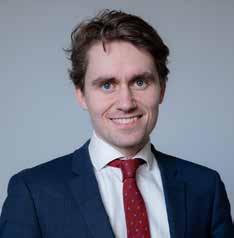
The principles applied by the courts in resolving financial matters on divorce are “broad brush”. This is often for good reason and the combative nature of court proceedings only make it more difficult for the courts to finesse the final outcome. This can lead to the intricacies of individual financial planning needs being overlooked.
While it may not always be feasible to circumvent the court system when addressing financial matters in divorce, opting for a more voluntary or cooperative approach wherever possible holds numerous virtues. Not only does it promise substantial cost savings and sidestep the delays inherent in court proceedings, but it also spares individuals the emotional toll of litigation. Additionally, choosing a cooperative route allows for a greater degree of subtlety and nuance, ensuring that the resulting agreement aligns effectively with each party’s financial objectives.
for couples to work with their wider network of advisers, such as financial, business and tax advisers. This collaborative effort ensures that the agreement reached is not just fair by the courts’ standards, but also structured to accommodate the couple’s individual financial or wealth preservation objectives.
There are a range of ADR options to consider and that we can assist with:
One Couple One Lawyer
One of the newest ADR options. The couple appoint the same solicitor to help them come to an agreement. The lawyer is able to give specific legal advice, apply the law to the facts of the case and guide the couple to reach an agreement. The discussions take place together as does the process of drafting any final agreement.
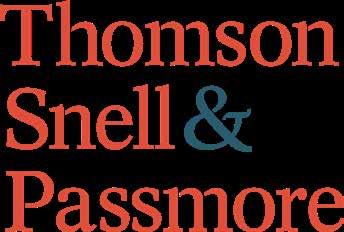
The various methods of Alternative Dispute Resolution (ADR) allow
ADR AND EMPOWERING ADVISORS Read in full click here 31
It’s (sometimes) Good to Think About Divorce
By Emma Nash | Family Lawyer and Partner | Rayden Solicitors W: www.raydensolicitors.co.uk
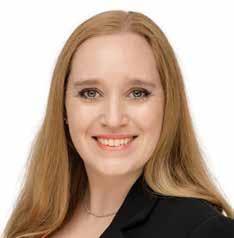
Getting married is one of the most important and exciting events in many people’s lives. The planning can start even before they’ve met ‘the one’.
This year I have the honour and pleasure of being a bridesmaid for one of my dearest friends. We met at university and bonded over a mutual love of Buffy the Vampire Slayer, good books and generally being geeky about studying law. We are both now Partners in our respective practice areas and still enjoy getting together and talking about legal developments as well as the latest must read or binge worthy television show. It has been a wonderful experience being involved in the planning of their special day including going to wedding dress appointments, shopping for bridesmaids dresses (and associated accessories) and, of course, helping to organise what was quite an epic hen party. An enormous amount of thought and preparation has gone into what is going to be an incredible wedding and a day that my friend, her husband-to-be and both their families and friends will treasure for the rest of their lives.
As a family lawyer, I spend a great deal of my time speaking to people who, despite best intentions and efforts, find themselves facing the end of their marriage. In contrast to the excitement and anticipation that is abundant in the lead up to a wedding and on the day itself, a divorce often comes with feelings of failure, uncertainty and mistrust. It can be a most difficult and stressful experience and one which will have a lasting impact of the rest of their lives both emotionally and financially.
No one plans to get divorced, but sensible financial and legal advice, both in advance of tying the knot and as soon as possible once divorce is a possibility, can help to make the experience and the outcome better for all involved. This is all the more important if there is any possibility of trust assets being involved and applies not just to those getting married or getting divorced, but to third parties such as the wider family,

NUPTIALS & NAVIGATIONS Read in full click here 32
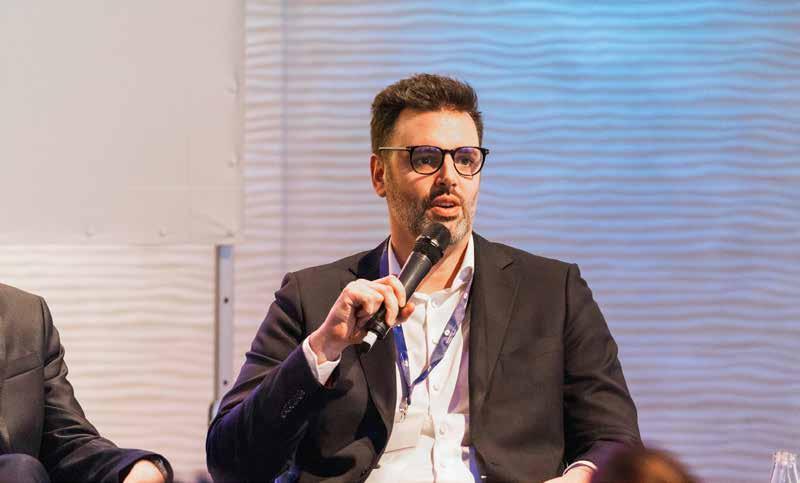




Monaco Conference 2024
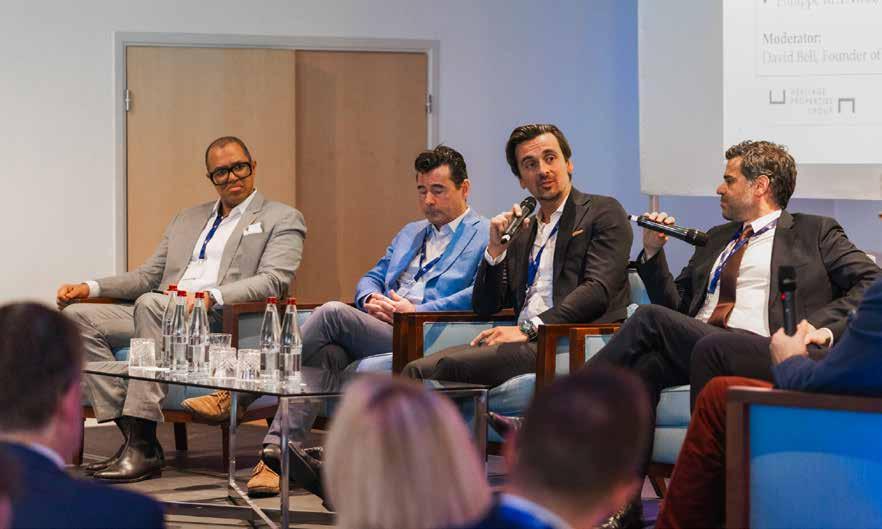



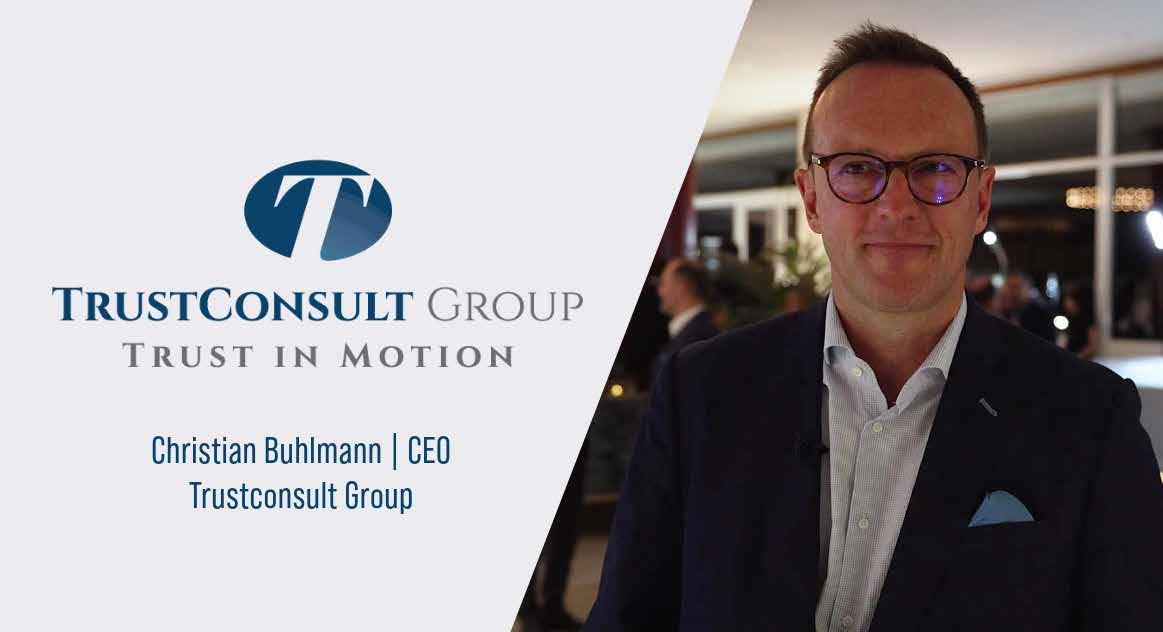


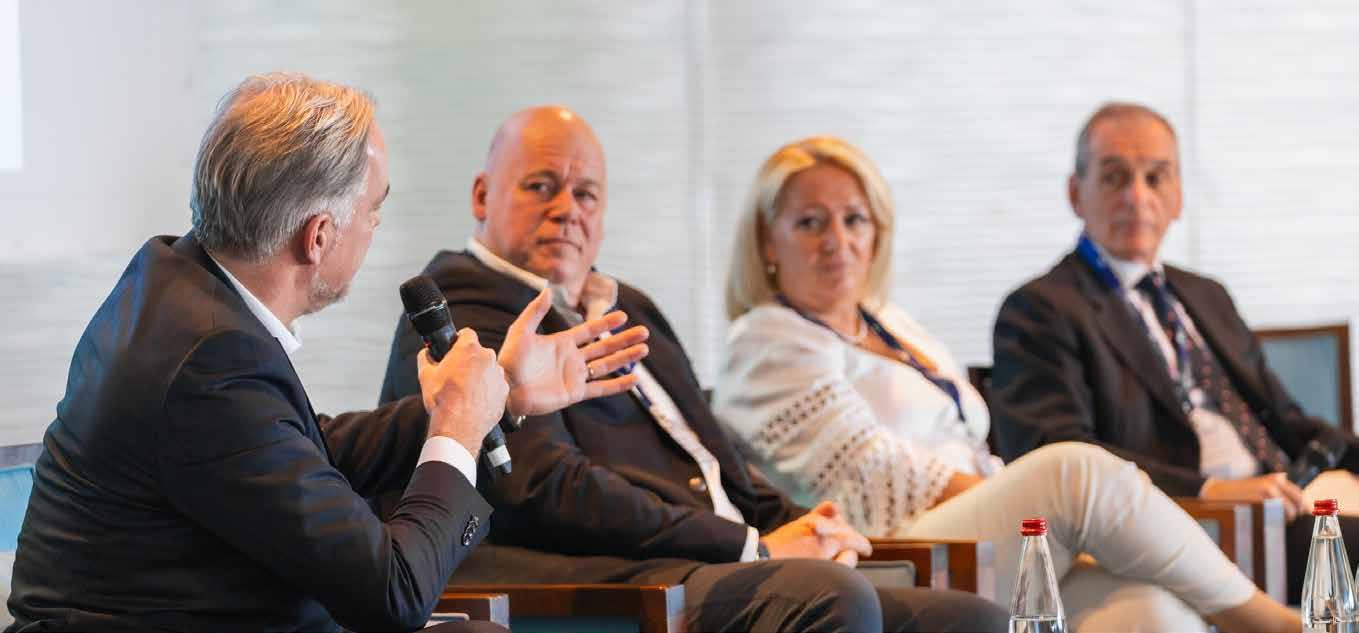
Read event write up
33
A Journey of Growth and Governance
By Mike Sim | Founder | Next Gen Leaders Institute
Guest Allard de Jong | Managing Director | Portcullis Group W: www.linkedin.com/company/nglinstitute


Allard de
Jong is a director of the Portcullis Group with responsibility for Fund Services and Fund Administration.
Allard has over 25 years of fund admin istration experience, having worked for Citco Fund Services in the Dutch Caribbean and the Netherlands, for Bank of Bermuda and for HSBC, where he was the head of HSBC’s Alternative Fund Services in Singapore.
Allard was director of Operational Due Diligence for KBC Alpha, an Asian focused Fund of Hedge Fund, which subsequently became part of PAAMCO. Allard was chairman of the Singapore Fund Administration Association from 2009 until 2014 and is currently non-executive director for several Impact investment funds and vehicles.
About Portcullis Group: At Portcullis, we understand the importance of continuity and legacy planning. We are a true family office
platform, with generational involvement in the business. We fully understand the needs and difficulties that families face and it is our vision to work with other families to create enduring legacies.
Portcullis is a family-owned independent Trust and Fund Administration Company. We have offices located in Singapore, Hong Kong, Taiwan, Labuan, Kuala Lumpur, the BVI, Samoa and the Cook Islands. We also maintain licenses in the Cayman Islands and Seychelles.
Portcullis commenced business in 1984 as a small part of a law practice in Singapore. In the 35 years since its inception, Portcullis has evolved into one of the largest Asian independent trust, fund and family office service providers.
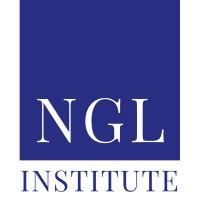
TRAILBLAZING IN FUND ADMINISTRATION Read in full click here 34

NEXTGEN
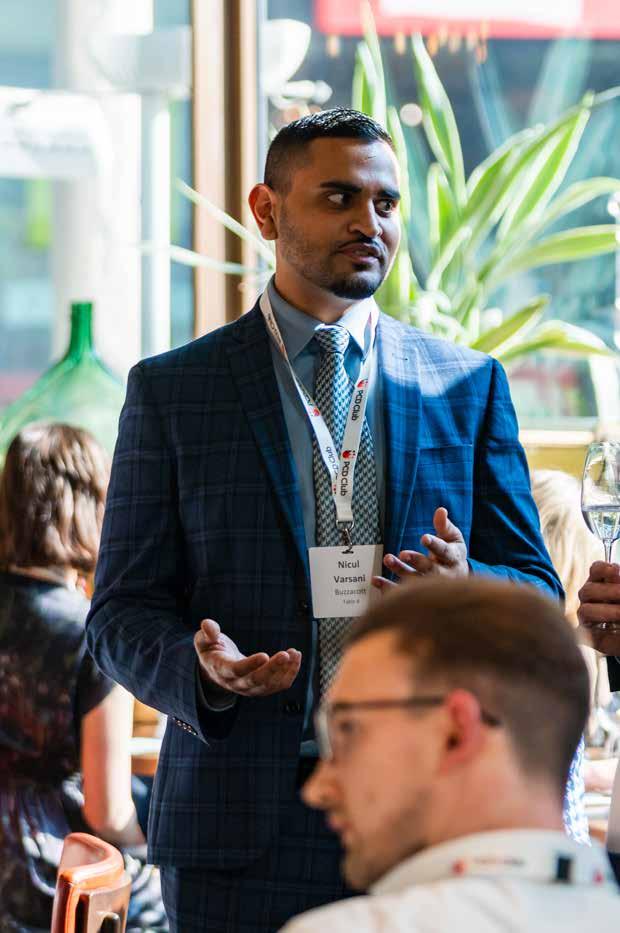






Vinoteca | 8 March 2024
NextGen Drinks Reception
Anna Slater, Nedbank Private Wealth
Nicul Varsani, Buzzacott
Tony Stoev, Sestini & Co
Jelani Davis-Mendley, RBC Brewin
Dolphin
Alex Gamble, Boodle Hatfield LLP
Ashley Claughton, Everfair Tax
Overcoming Cultural Barriers Within Diverse Working Environments
By Zoe Cousens | Founder & Start-ups Adviser | Zoe Cousens W: thewomensinvestmentnetwork.com/about/
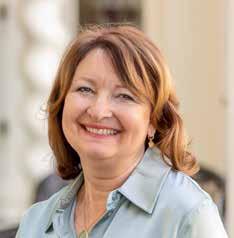
In my role as a coach, I specialise in offering transformational ideas and processes to build confidence, resilience and courage in people for their benefit and also the businesses where they work. One example of this has been my work with a fiduciary firm licensed in Abu Dhabi Global Markets to provide corporate services, trusts & foundations to UHNW clients. Having recently experienced some potential issues in multicultural communication skills for her staff, the CEO asked me to address these with the goal of boosting staff engagement and retention.
With the influx of new businesses to the Gulf countries all looking for staff, we’re enjoying an increasing diversity of cultures, and the vibrancy and energy that multi-cultural working brings. However, that new working environment brings a new set of challenges. For example, staff may be inexperienced in the sector in which they are now employed - there are new skills to be learned in performing daily tasks essential to that business,
together with a clear understanding of employer expectations and the importance of good communication in a diverse workplace.
Communication
When staff come from many different cultural backgrounds, all too often this leads to misunderstandings if they are not familiar with each other’s language, cultural norms, values and customs. Further, nonverbal communication such as body language can vary significantly, with what is considered appropriate in one culture being perceived differently in another. For example, maintaining eye contact may be either a sign of respect and confidence, or impolite and confrontational. Other considerations are dress code, greetings, and overall conduct in formal settings which

ENHANCING WORKPLACE COMMUNICATION Read in full click here 36
French Connected Trusts – An Overview of the French Reporting Obligations and Exposure to the French Tax System
By Virginie Deflassieux | French Tax Director | BDO Ltd Guernsey W: www.bdo.gg/en-gb/our-people/virginie-deflassieux
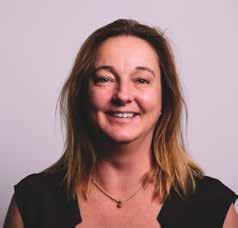
It is hard to believe that the French tax authorities (“FTA”) can levy a €20,000 penalty for a mere reporting omission even in the absence of any tax prejudice, but this is a reality for French-connected trust parties.
The July 2011 French tax legislation on trusts was part of a broader set of French tax measures aimed at combatting tax fraud and evasion. Originally enacted on the premise that all trusts are suspicious tax evasion vehicles, this law has caught thousands of legitimate trusts in its wake.
Here we look at the factors that make a trust reportable in France and at the main areas of potential exposure to the French tax system.
Scope of French Reporting
The French reporting triggers and types of disclosures have evolved since July 2011. Currently, a trust or trustlike arrangement (eg foundations, bare-trusts, etc) is reportable in France if:
i) It has at least one French resident party, or
ii) It holds French assets as follows and regardless of its parties’ residence status:
a. French real estate assets held directly or indirectly.
b. Works of art, collections, vehicles, chattels, livestock, and any other movable assets.
c. Since 2019, the reporting is extended to French financial assets or rights therein and related capitalised income. However, aside from rare exceptions, the reporting does not apply if these assets are held through a non-French underlying entity or collective investment scheme.
d. From 2020, non-EU situated trusts must report within a month when acquiring French real estate or

UNDERSTANDING TAX OBLIGATIONS Read in full click here 37



Our new podcast for professionals dealing with high net worth clients.





 By David Bell, Founder | PCD Group
By David Bell, Founder | PCD Group




























































 Leah Alexander, Duncan Aviation
Leah Alexander, Duncan Aviation




















 By David Bell, Founder | PCD Group
By David Bell, Founder | PCD Group





 Mark Brooks, Founder of Mark Brooks Education
Mark Brooks, Founder of Mark Brooks Education








 Alicea Castellanos CEO and Founder of Global Taxes
Alicea Castellanos CEO and Founder of Global Taxes


















































